
The goal of Super Reefs is to help preserve the corals across the oceans that are naturally heat resistant.
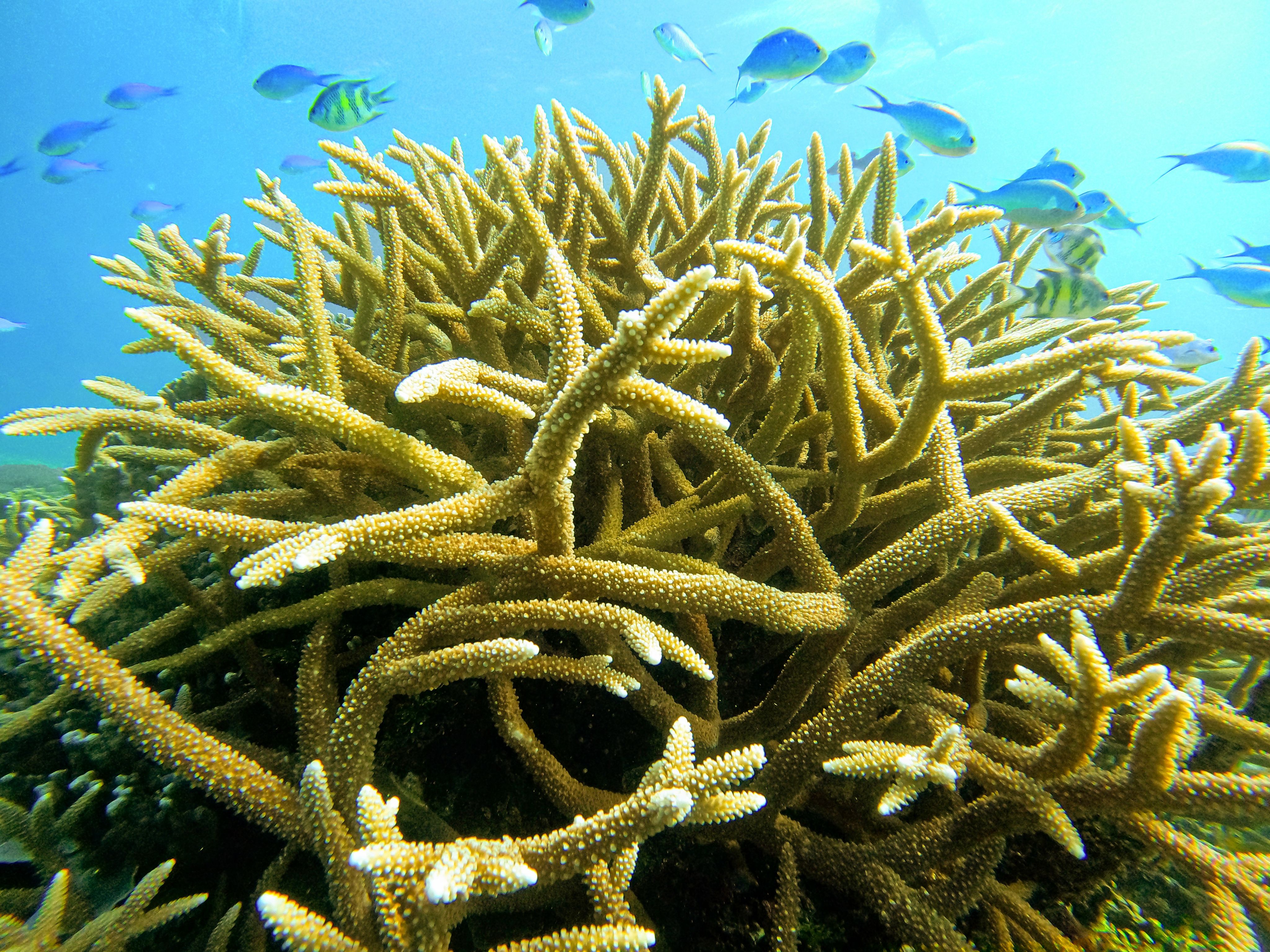
Staghorn coral at Super Reefs site, Majuro, The Marshall Islands
Staghorn coral at Super Reefs site, Majuro, The Marshall Islands
These are the corals that have the best chance to survive the earth's warming oceans.
Super Reefs is a partnership between governments, community organizations, and universities that share in the understanding that finding these strong corals will bring benefits to the local environment and to local people.
The Super Reefs model predicts where a Super Reef site might be located. Here is an example from Majuro, The Marshall Islands. We are also looking for these reefs across the ocean (e.g. Belize, Hawaii, and Palau).
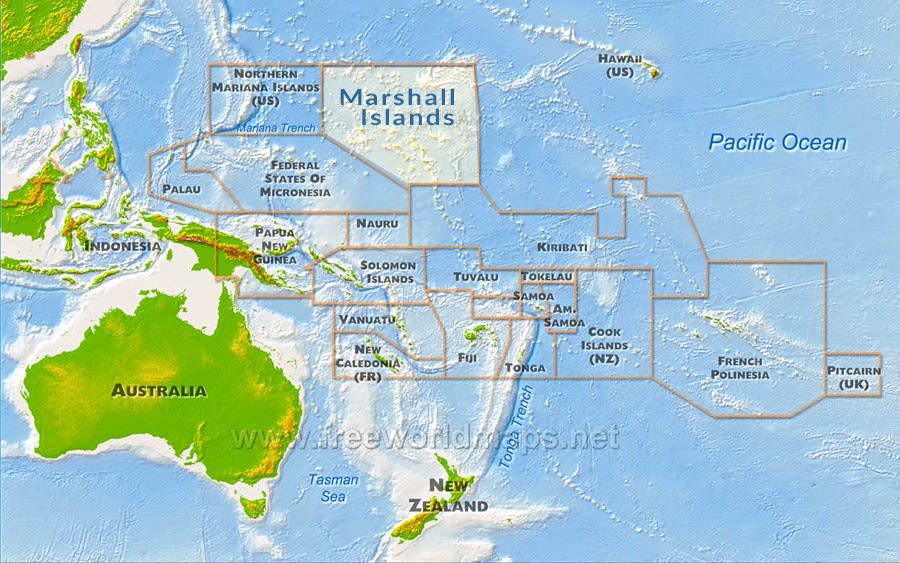
Republic of Marshall Islands
Republic of Marshall Islands
In the spring of 2023 a group of dedicated people gathered for The Marshall Islands Super Reef Kickoff meeting. Scientists and conservationists from Woods Hole Oceanographic Institute (WHOI), Stanford University, and The Nature Conservancy (TNC) met with representatives of Marshall Islands Marine Resources Authority (MIMRA), Marshall Islands Conservation Society (MICS), and other local leaders.
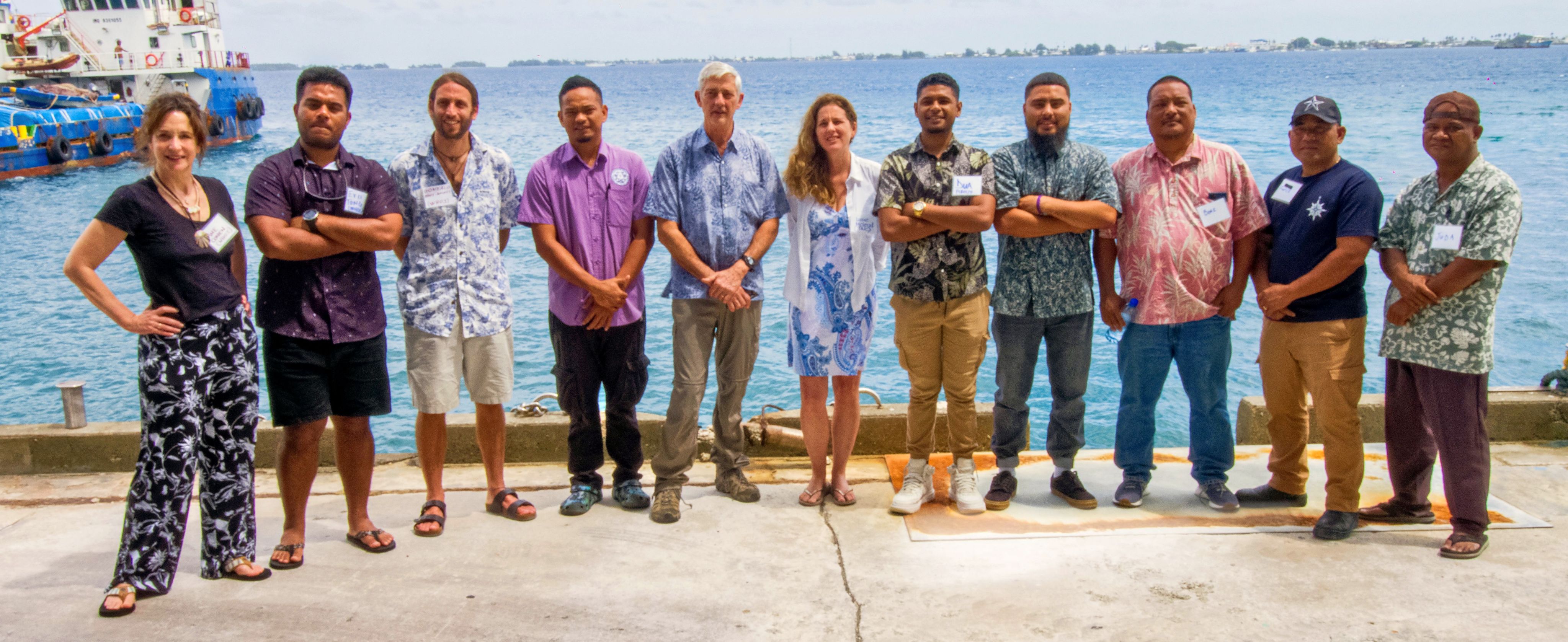
Participants at Super Reefs kickoff meeting, Majuro, The Marshall Islands
Participants at Super Reefs kickoff meeting, Majuro, The Marshall Islands
“This is a partnership, training for our local people in order to do the work that needs to be done...at the end of the day and in the long term, our people have to be able to do it, because it's important."

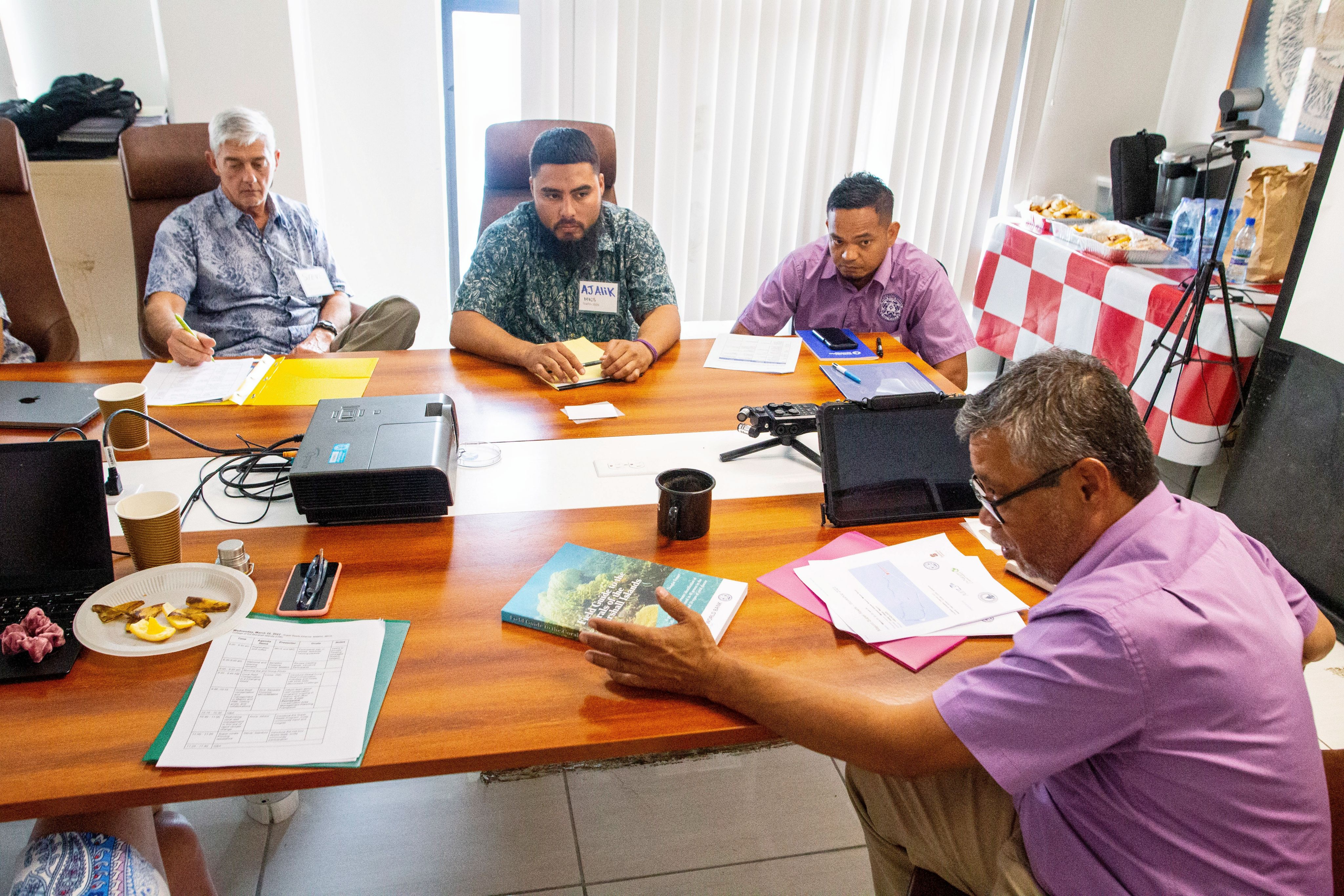
"The traditional leaders and local governments need to understand what their communities are working towards.
It's really important that you have the communities engage throughout all the steps to ensure their vision."

Finding clusters of heat resistant corals allow planners to protect them for the future.
These strong corals can also be used as individual elements for building new reefs or renewing current ones.
Coral gardeners have begun taking suggestions from the playbook of forest restoration: instead of replacing trees with ones that to used to grow there, foresters are now renewing forests with trees chosen to be able to live in future climates.
Likewise, coral reef renewal projects can plant heat resistant corals selected from Super Reefs to build coral ocean nurseries that are much more future-ready.
Suppose every reef area, like this reef in Palau, had an ocean nursery that included lots of strong local coral species and varieties–
–some sun-loving, some heat resistant, some fast growing, some slow growing.
Bleached or broken corals could be replaced with strong local varieties of nursery-grown corals that will better withstand changing environmental conditions.
This would enable coral reefs like these to survive, and better yet, to thrive!
RESEARCH PARTNERS
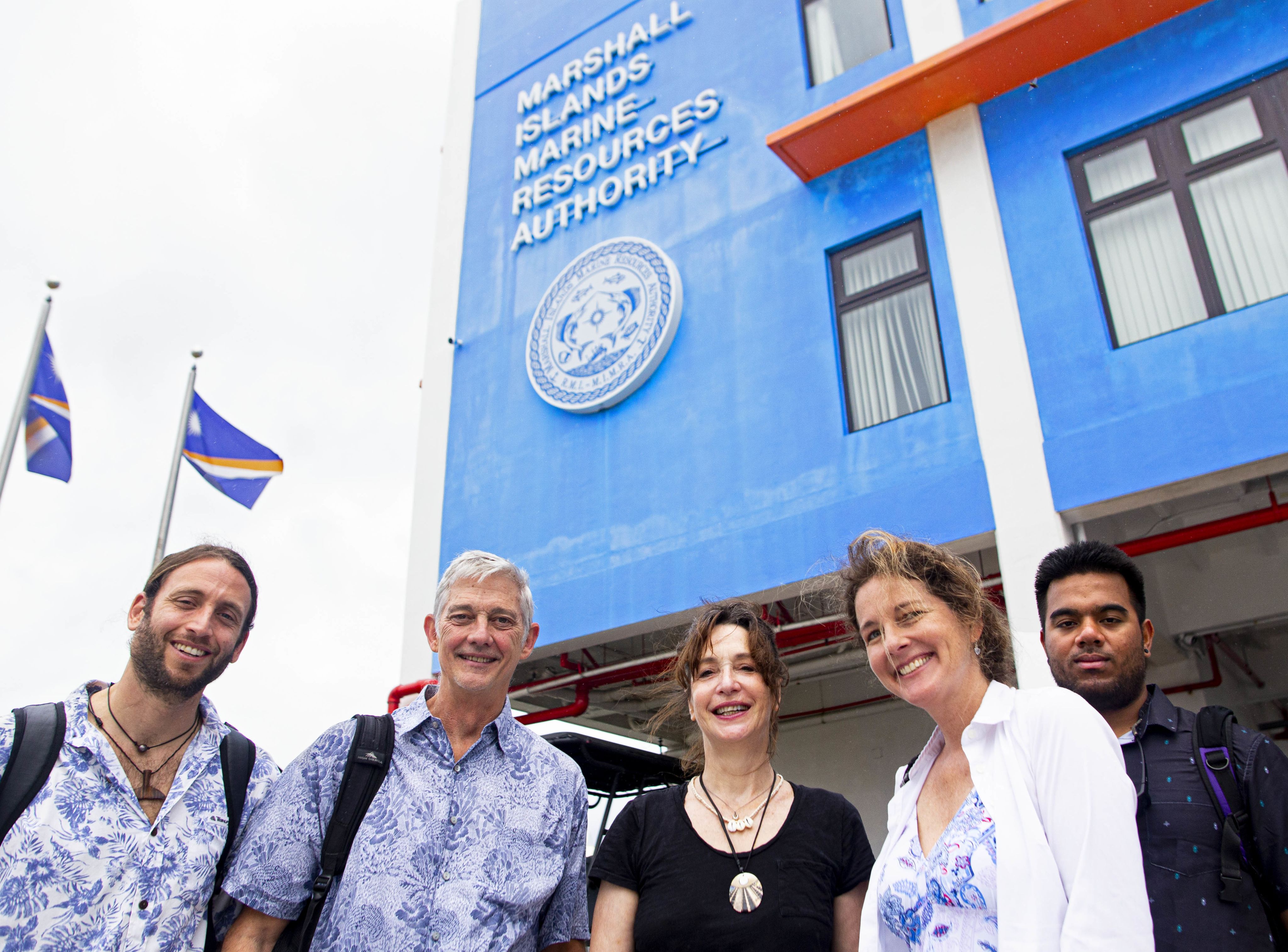
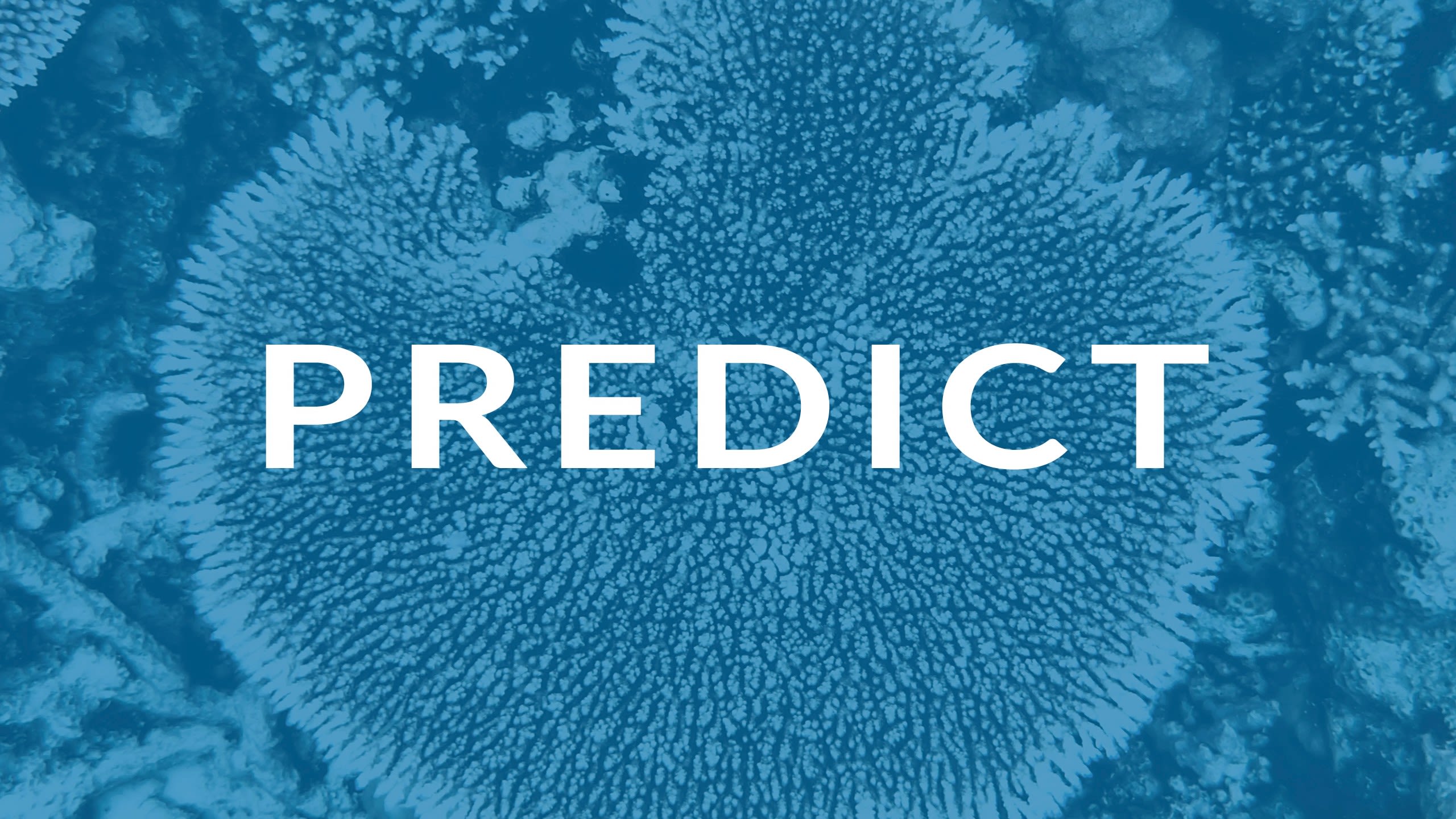
Woods Hole Oceanographic Institute
(WHOI)
“These marine heatwaves are the weather equivalent of an atomic bomb.
The damage can be sudden and extensive, causing widespread bleaching and coral death in a single event. Nonetheless, we have observed diverse coral communities that survive these heatwaves with minimal impact and others that recover remarkably quickly.”
Dr. Cohen and the WHOI team developed meter-scale, three-dimensional, hydrodynamic models of reef temperature and flow to predict where Super Reefs might be located.
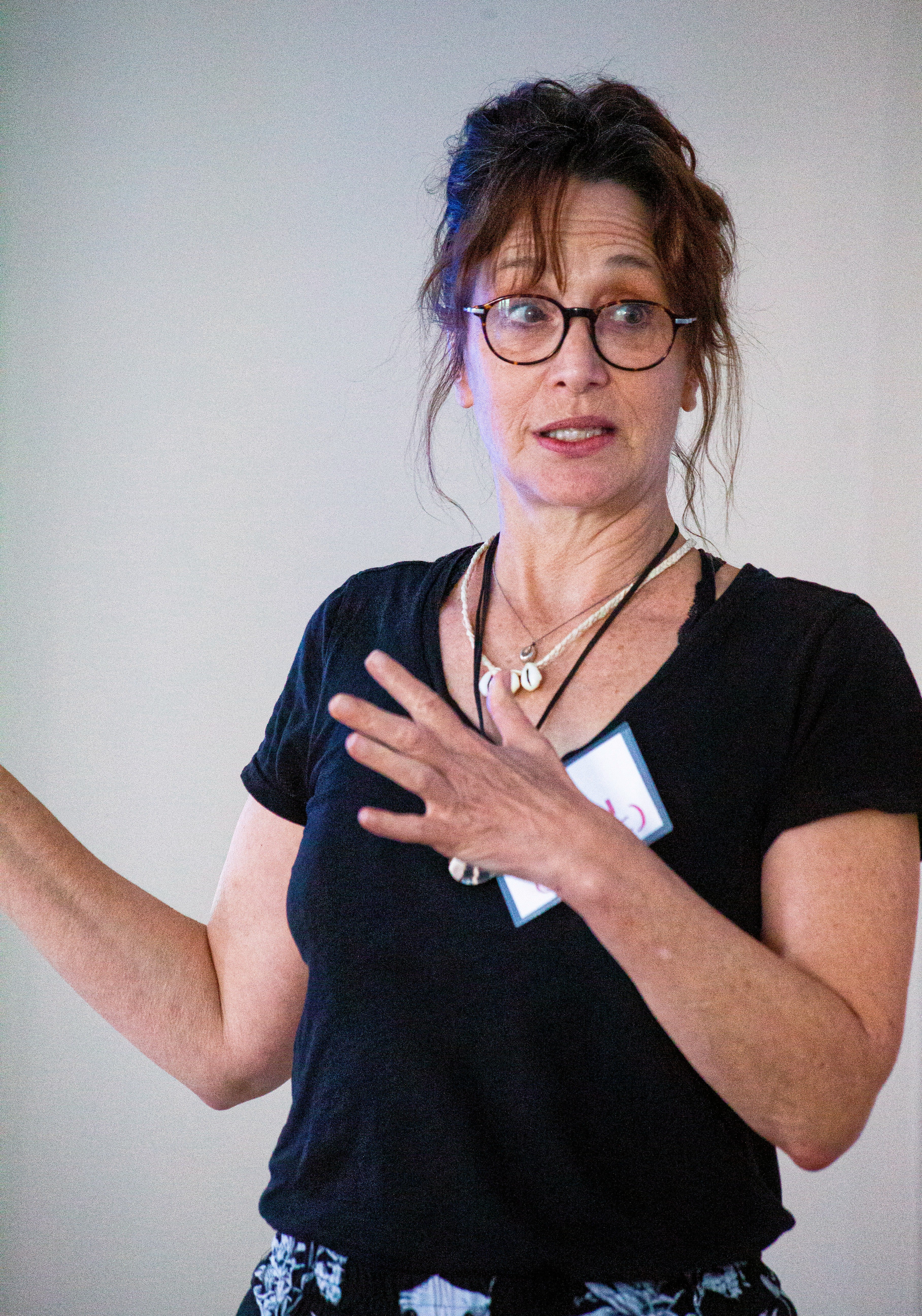
Dr. Anne Cohen, WHOI, presenting the Super Reefs model, Majuro, Marshall Islands
Dr. Anne Cohen, WHOI, presenting the Super Reefs model, Majuro, Marshall Islands
“What we are doing is actually quite remarkable. We are uncovering nature’s secrets and using them to help her, as best we know how.”
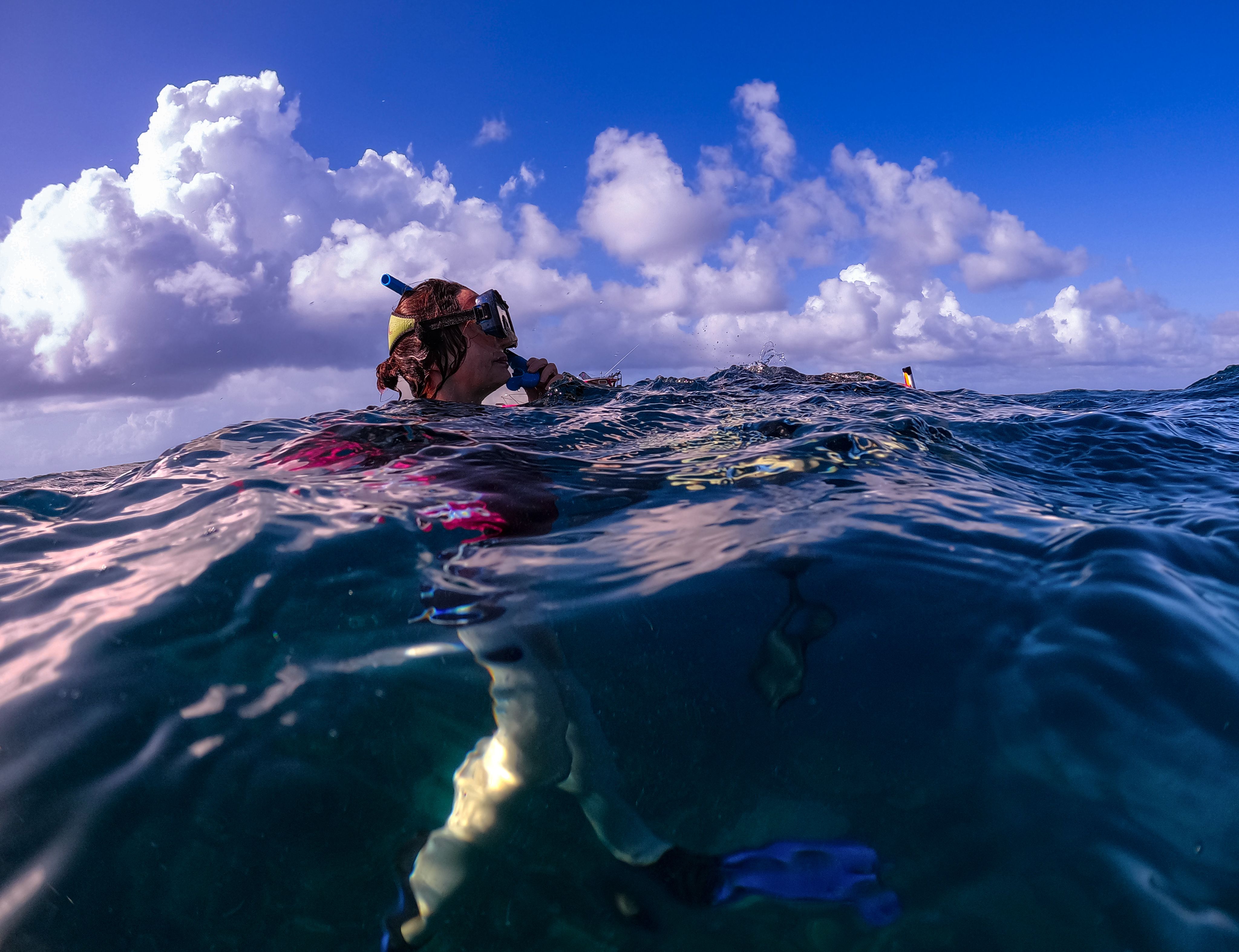
Dr. Anne Cohen, WHOI, at Super Reefs site, Majuro, Marshall Islands
Dr. Anne Cohen, WHOI, at Super Reefs site, Majuro, Marshall Islands
Dr. Anne Cohen, a scientist at Woods Hole Oceanographic Institute in partnership with other coral reef scientists, conservation organizations, and several coral reef island nations, and scientists in her lab, launched the Super Reefs initiative in 2017.
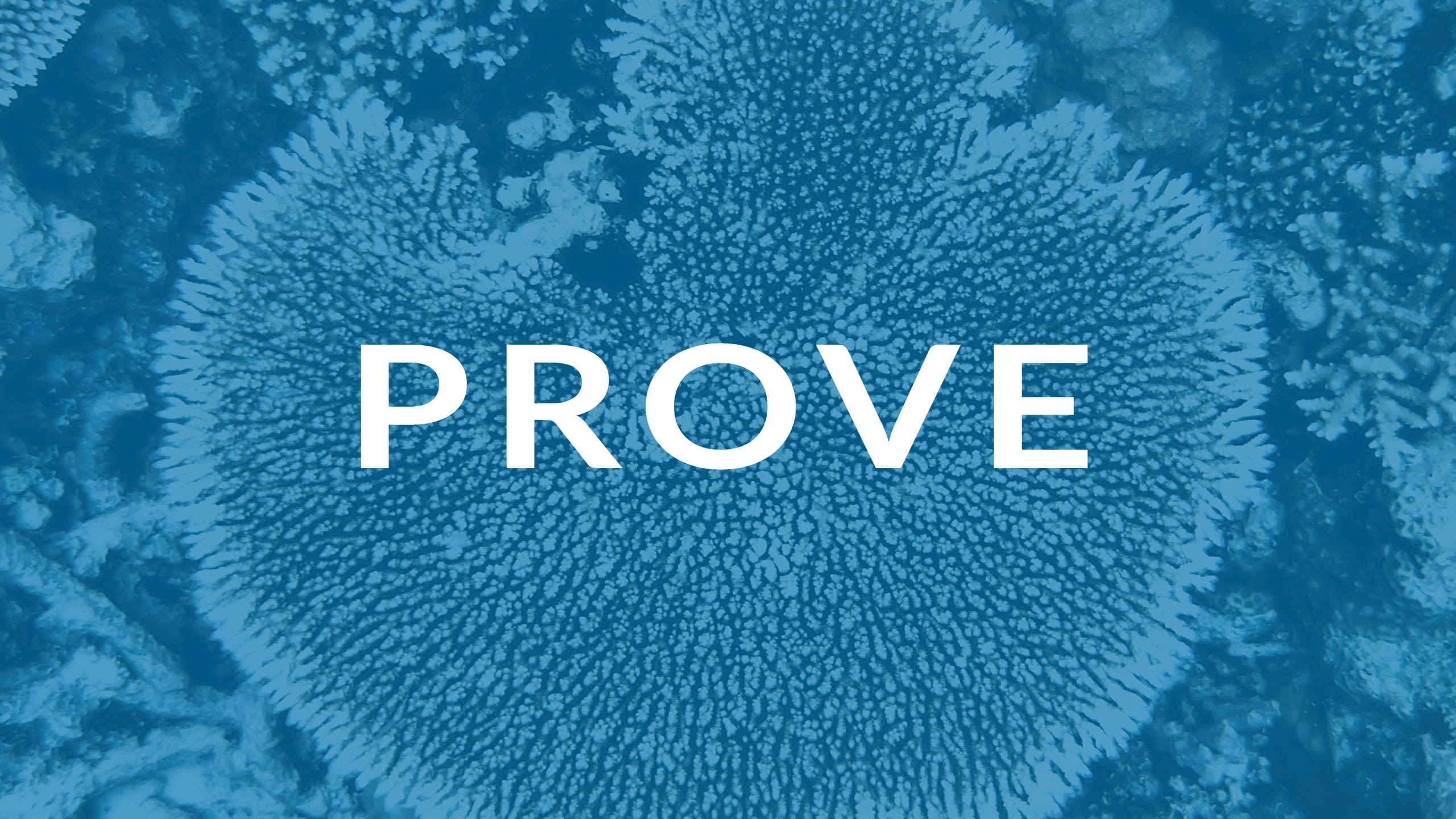
Stanford University
“In Majuro there are many good reefs. In a lot of places the coral is actually doing pretty well. What we are here to do is to identify and prove that there are heat resistant corals that can give the reef the ability to heal itself and to grow in the future.”
Dr. Palumbi, a marine geneticist from Stanford University, and teams of local students and conservation leaders will begin the identification process. They plan to test multiple species of corals–quantifying the coral's ability to withstand current and future heatwaves, and generating crucial data for Super Reefs research.
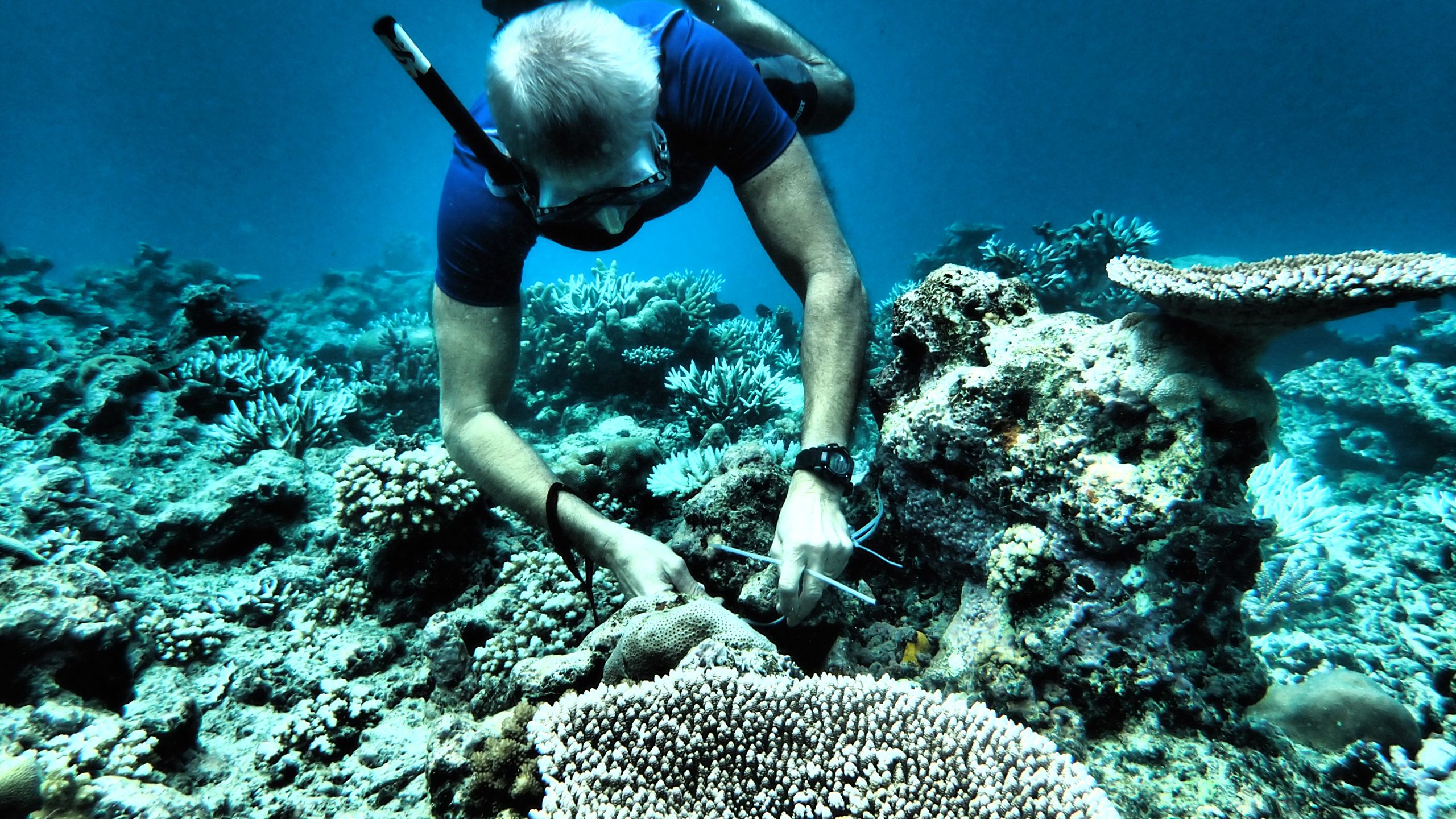
Dr. Steve Palumbi, Stanford University, tagging coral, Palau
Dr. Steve Palumbi, Stanford University, tagging coral, Palau
“It’s cheaper to protect coral than to restore coral. That’s why we want to find and protect the corals that are going to survive in a warming ocean.
That's the most powerful thing we can do.”
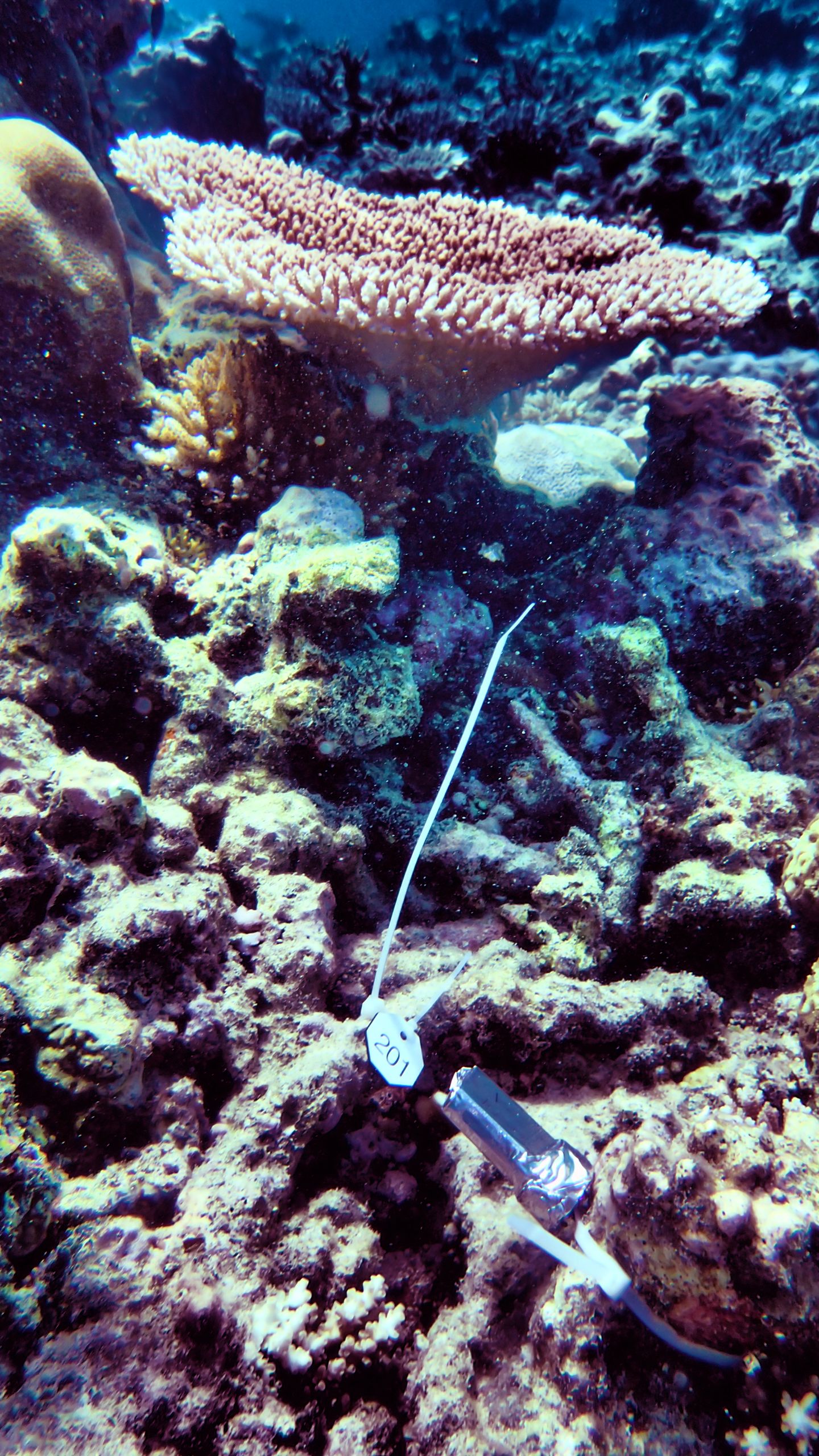
Coral ID tag, Palau (from Dr. Steve Palumbi, Stanford University)
Coral ID tag, Palau (from Dr. Steve Palumbi, Stanford University)
Dr. Steve Palumbi is a marine scientist at Stanford University. His work on reefs in American Samoa and Palau has developed a method to prove which corals are heat resistant and which are not.
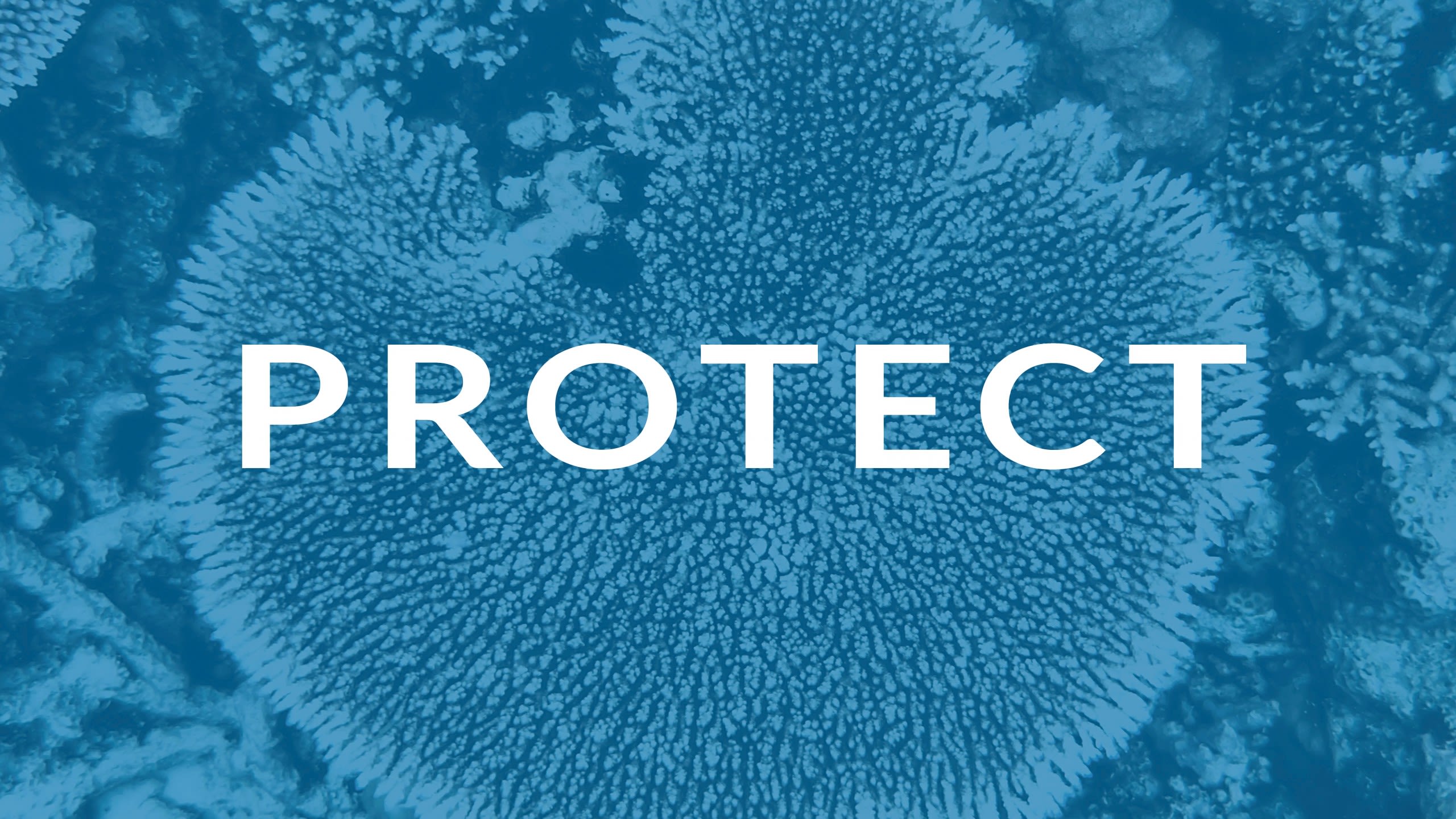
The Nature Conservancy
(TNC)
“I was really excited to come to Majuro to meet with our local partners at MICS and MIMRA to better understand their priorities and opportunities to support conservation efforts. At The Nature Conservancy, a key piece is supporting government-led and community-led conservation efforts.”
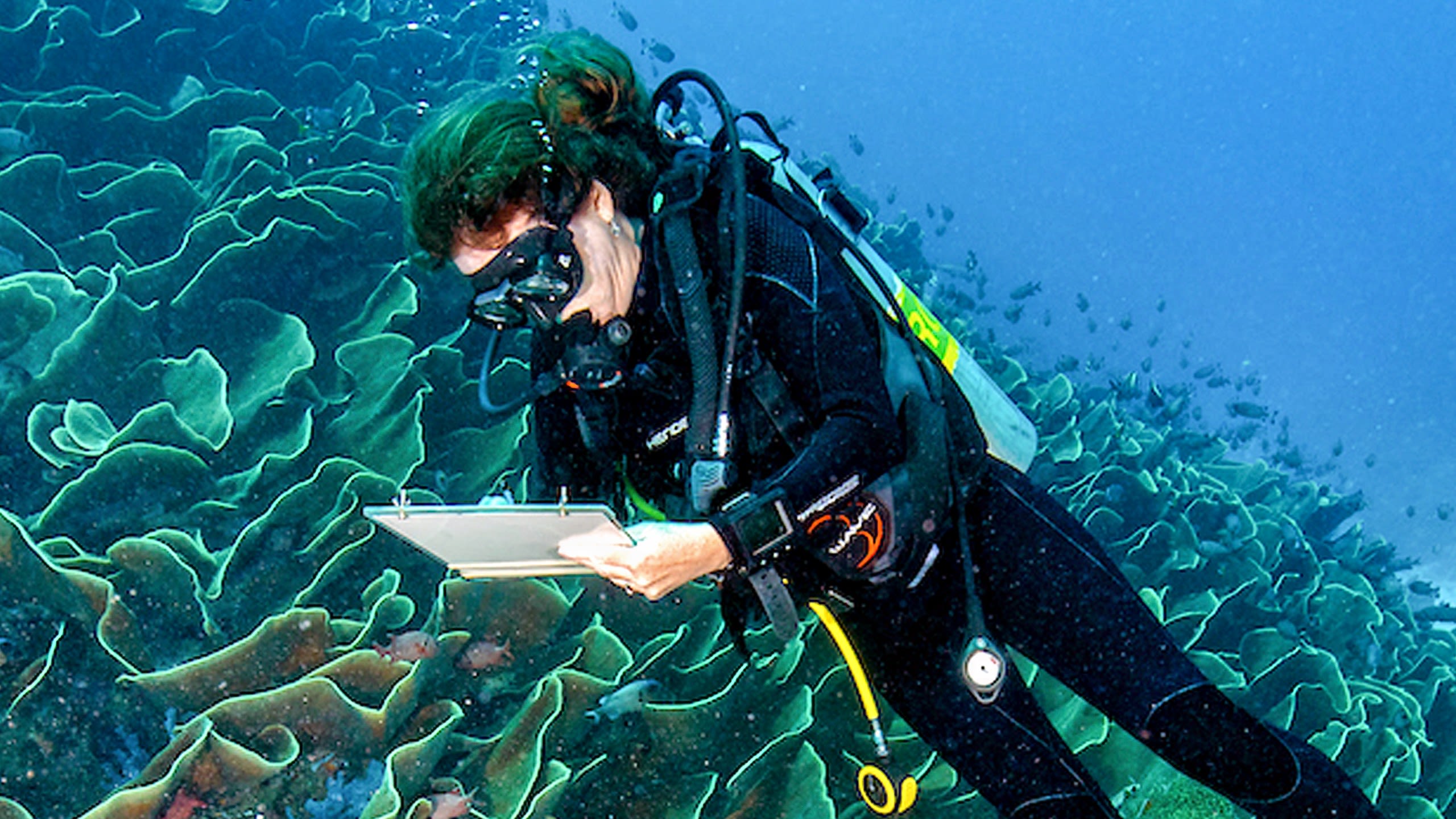
Dr. Lizzie McLeod, TNC, Palau. Photo courtesy Kip Evans
Dr. Lizzie McLeod, TNC, Palau. Photo courtesy Kip Evans
This is not an academic exercise—families, livelihoods, and entire ocean ecosystems are on the line. Coral reefs support an estimated one billion people worldwide and one quarter of all marine species. They harbor fisheries, protect shorelines and form the basis for tourism industries in rich and poor nations alike - contributing $2.7 trillion to the global economy each year.
"Protecting these precious source reefs and renewing what’s been lost will require dedicated effort and investment. We have the tools today to save coral reefs. We need to implement them around the world to ensure a future for reefs."
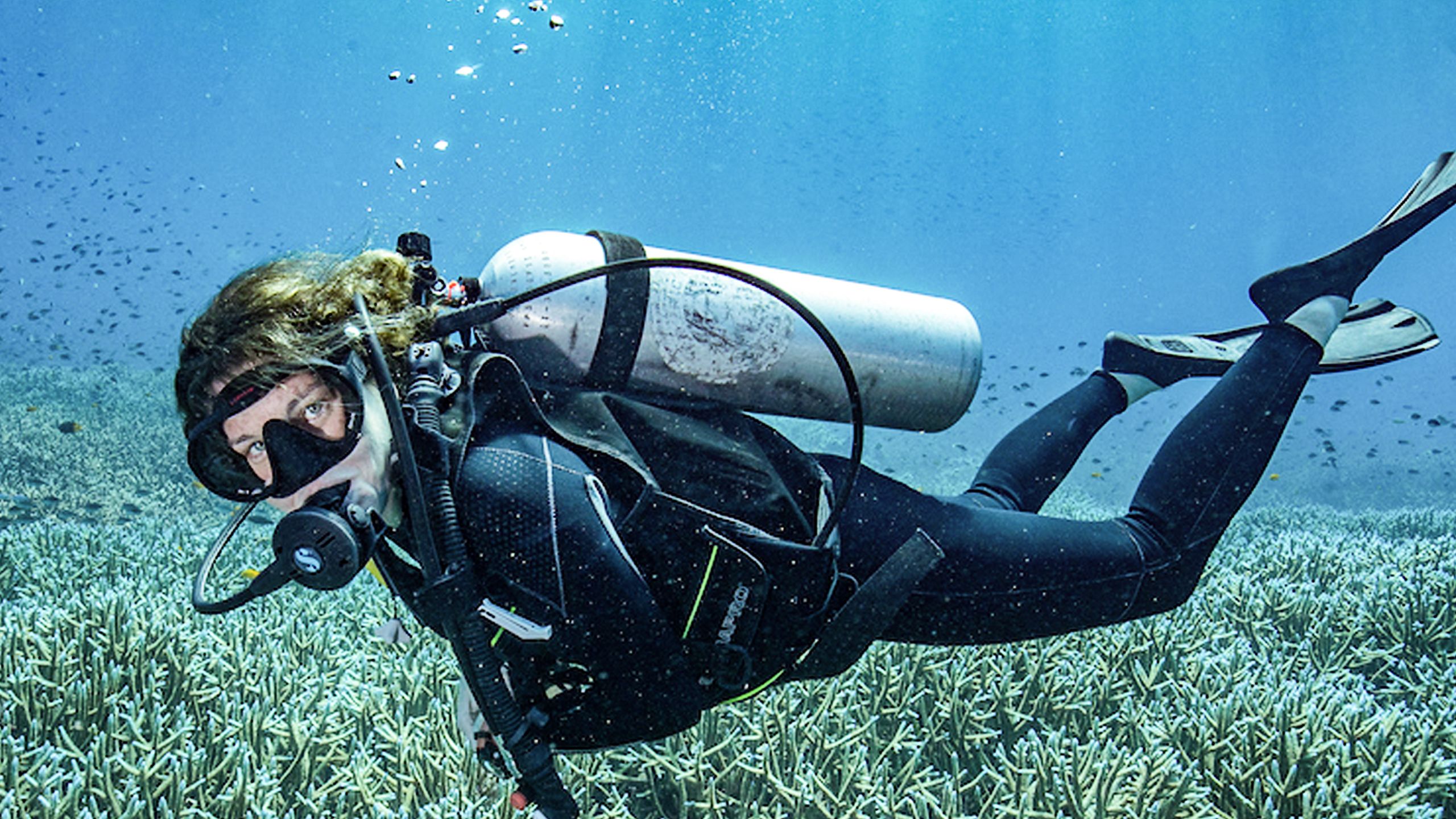
Dr. Lizzie McLeod, TNC, Palau. Photo courtesy Kip Evans
Dr. Lizzie McLeod, TNC, Palau. Photo courtesy Kip Evans
Dr. Lizzie McLeod works with The Nature Conservancy colleagues and local partners to validate the model outputs with local data and support the protection and restoration of Super Reefs.
COMMUNITY PARTNERS
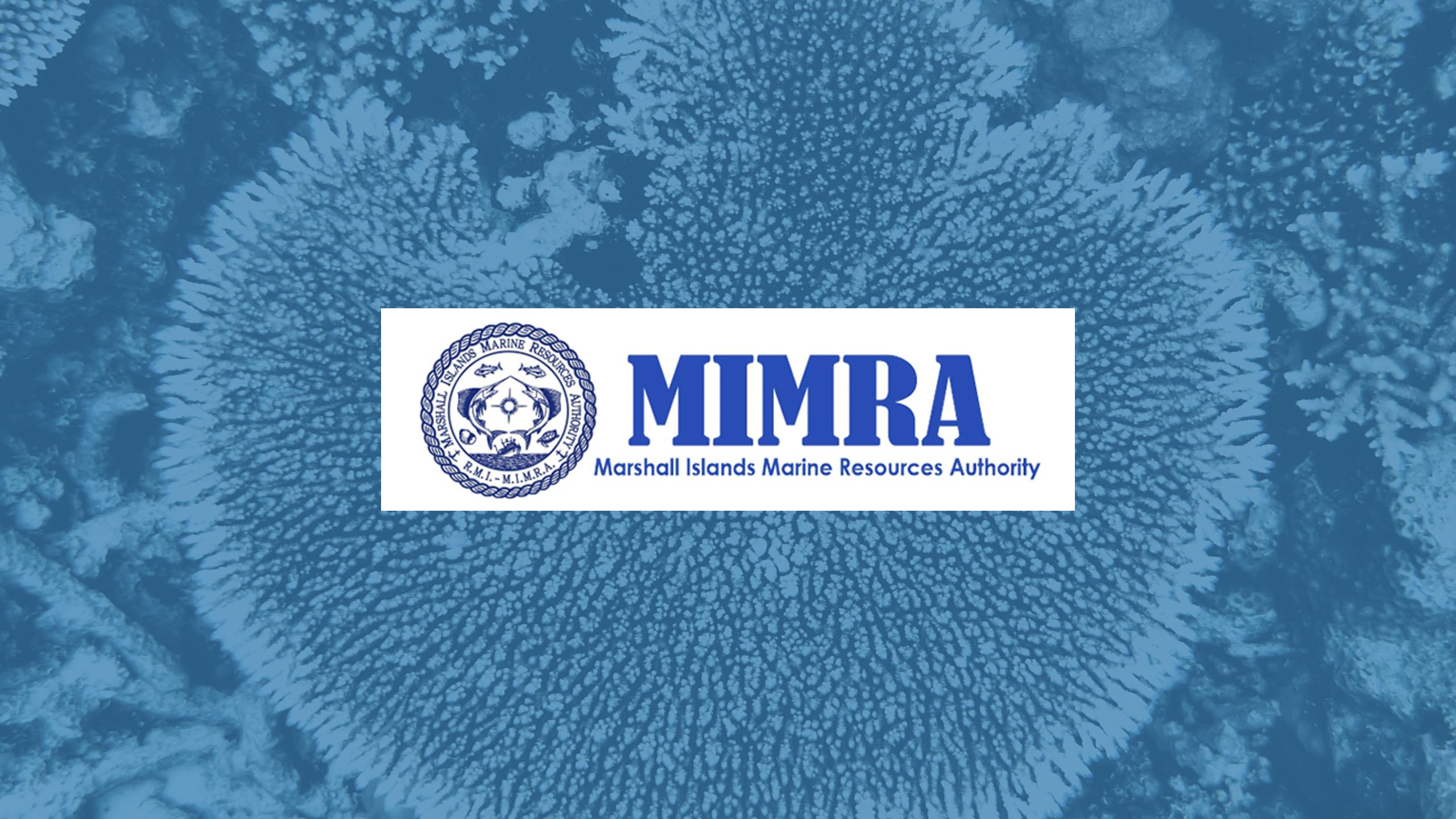
Marshall Islands Marine Resources Authority (MIMRA)
The organization mission is to secure and enable mobilization of resources in support of the establishment and management of a network of protected areas in the RMI.
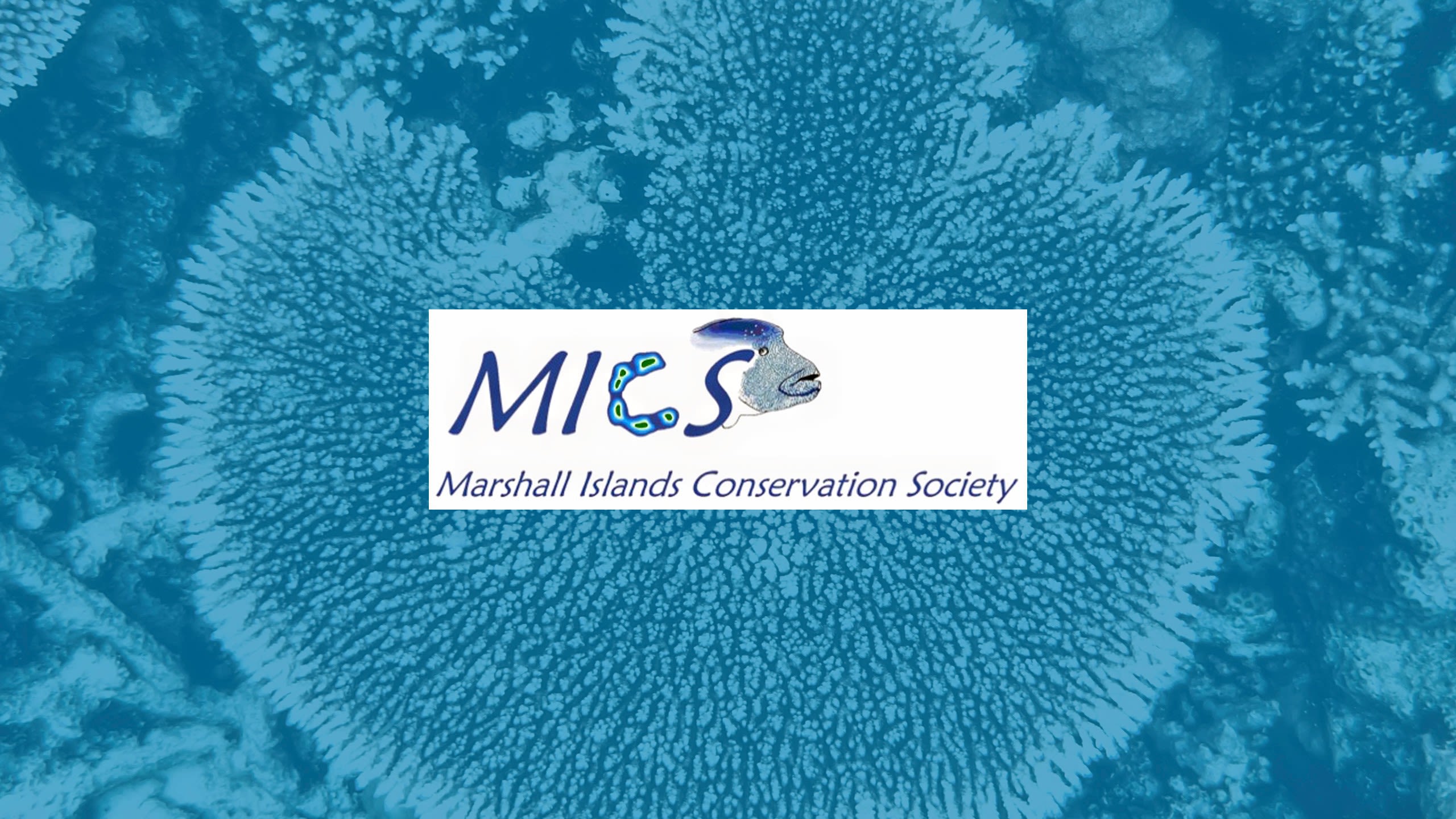
Marshall Islands Conservation Society (MICS)
Our organization’s vision is People and Nature in Harmony wherein the Marshallese people come to a new equilibrium with nature, based on a combination of traditional resource management practices (e.g. m̗o) and scientific assessments and insights for protection and management of target features, species and locations.
SUPER REEFS KICKOFF MEETING
Majuro, The Marshall Islands
2023
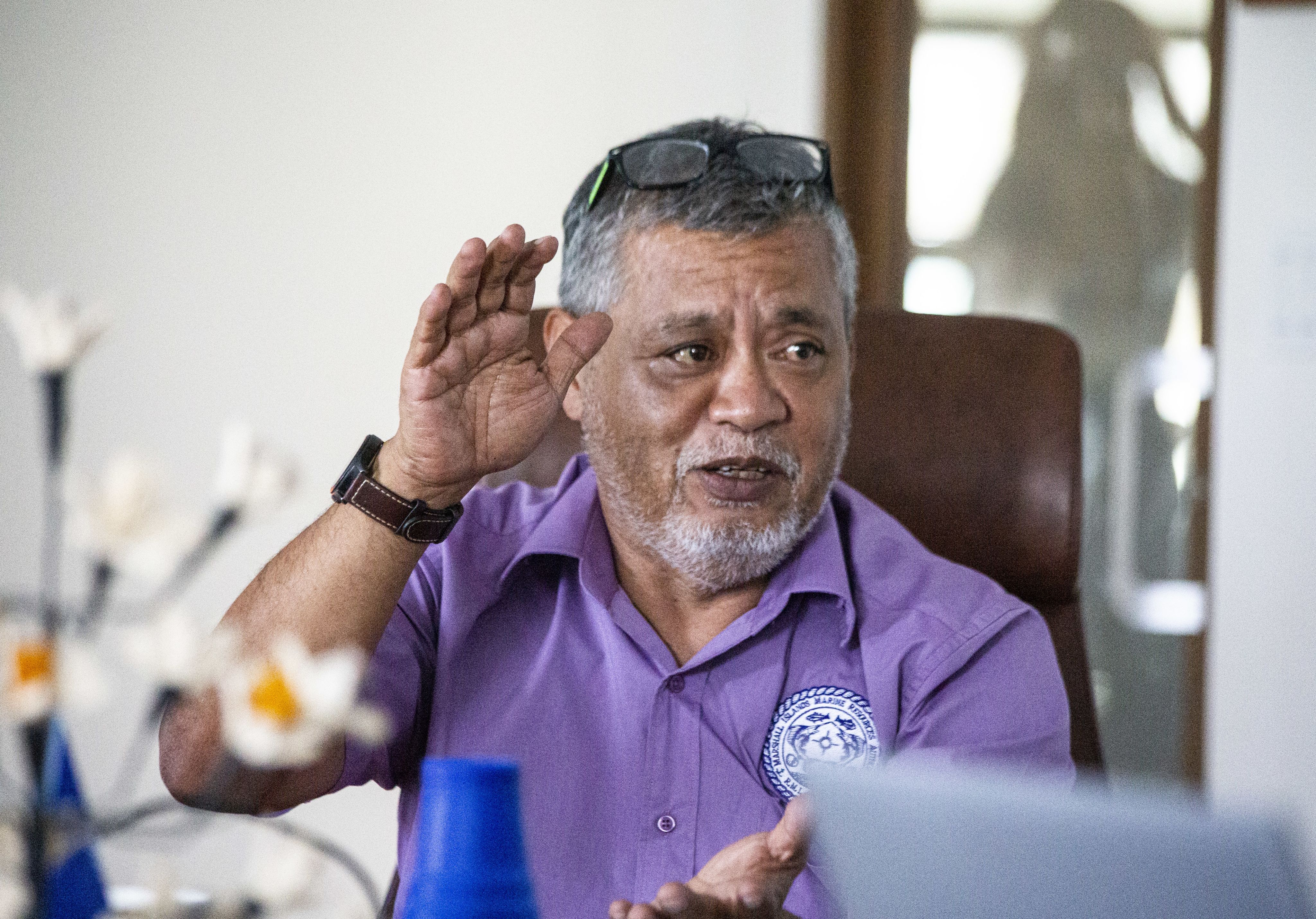
Glen Joseph, MIMRA, at Super Reefs Kickoff meeting, Majuro, The Marshall Islands
Glen Joseph, MIMRA, at Super Reefs Kickoff meeting, Majuro, The Marshall Islands
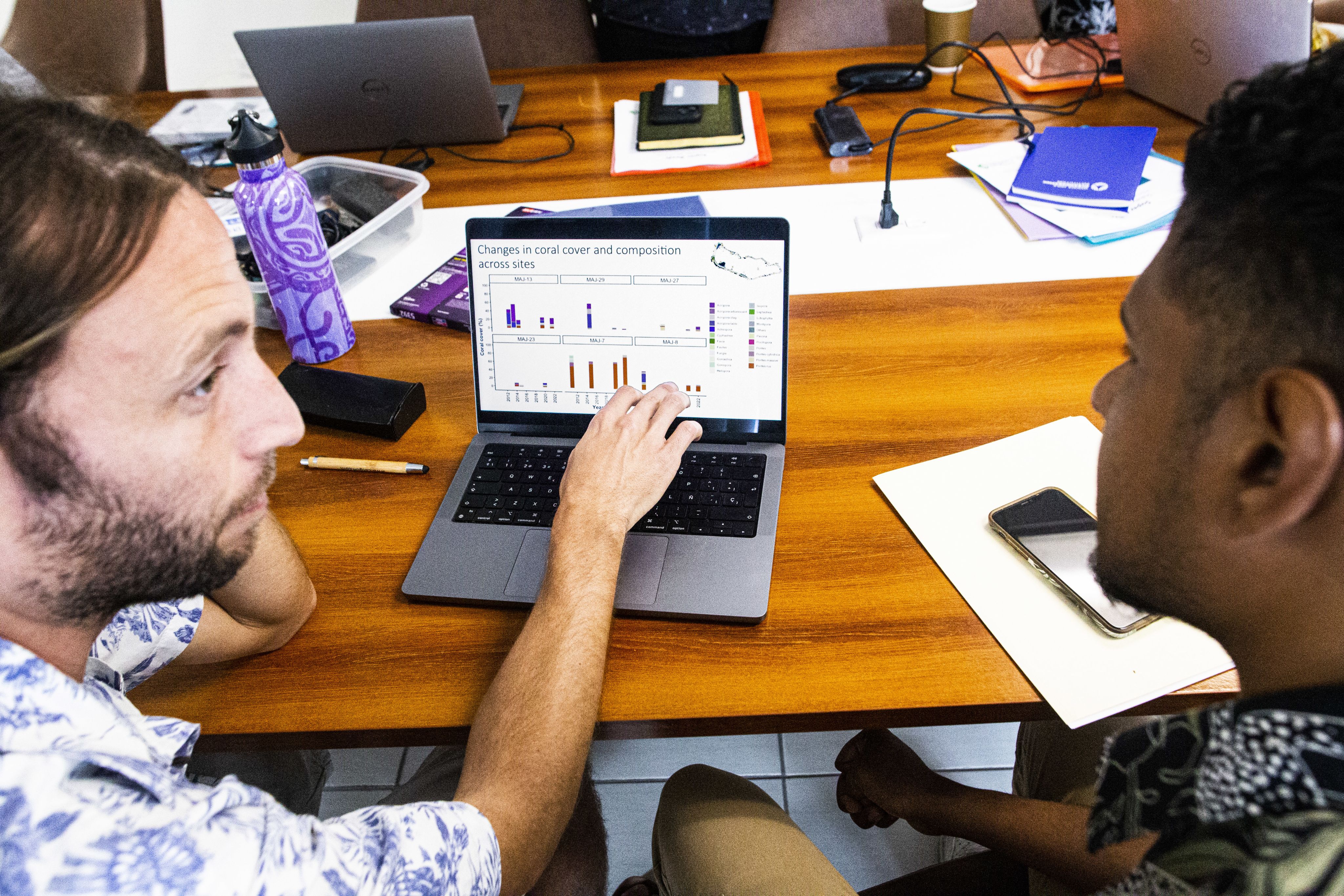
Gonzalo Pérez-Rosales, WHOI; Dua Rudolph, Deputy Director MICS at Super Reefs Kickoff meeting, Majuro, The Marshall Islands
Gonzalo Pérez-Rosales, WHOI; Dua Rudolph, Deputy Director MICS at Super Reefs Kickoff meeting, Majuro, The Marshall Islands
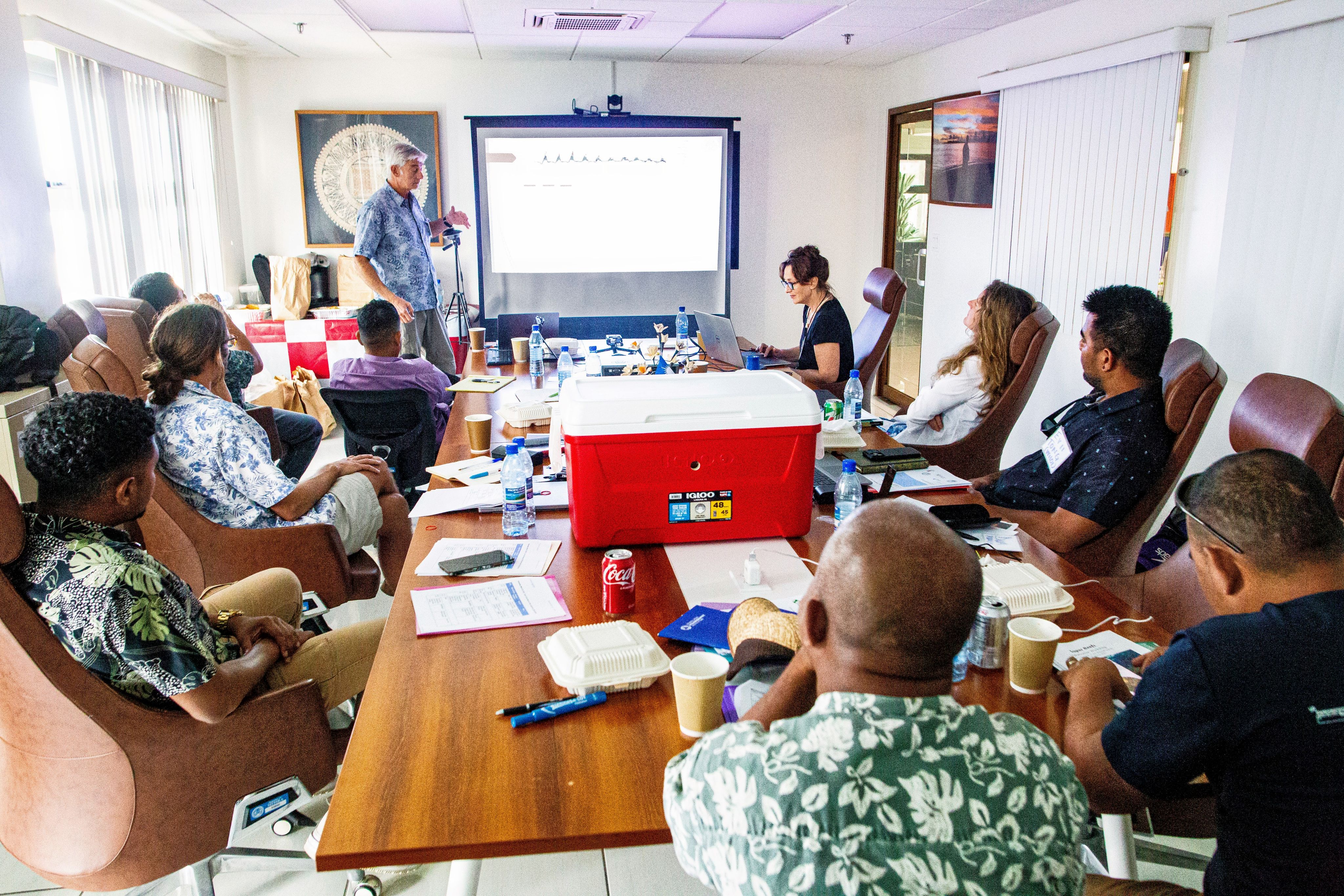
Dr. Steve Palumbi, Stanford University, presenting at Super Reefs Kickoff meeting, Majuro, The Marshall Islands
Dr. Steve Palumbi, Stanford University, presenting at Super Reefs Kickoff meeting, Majuro, The Marshall Islands
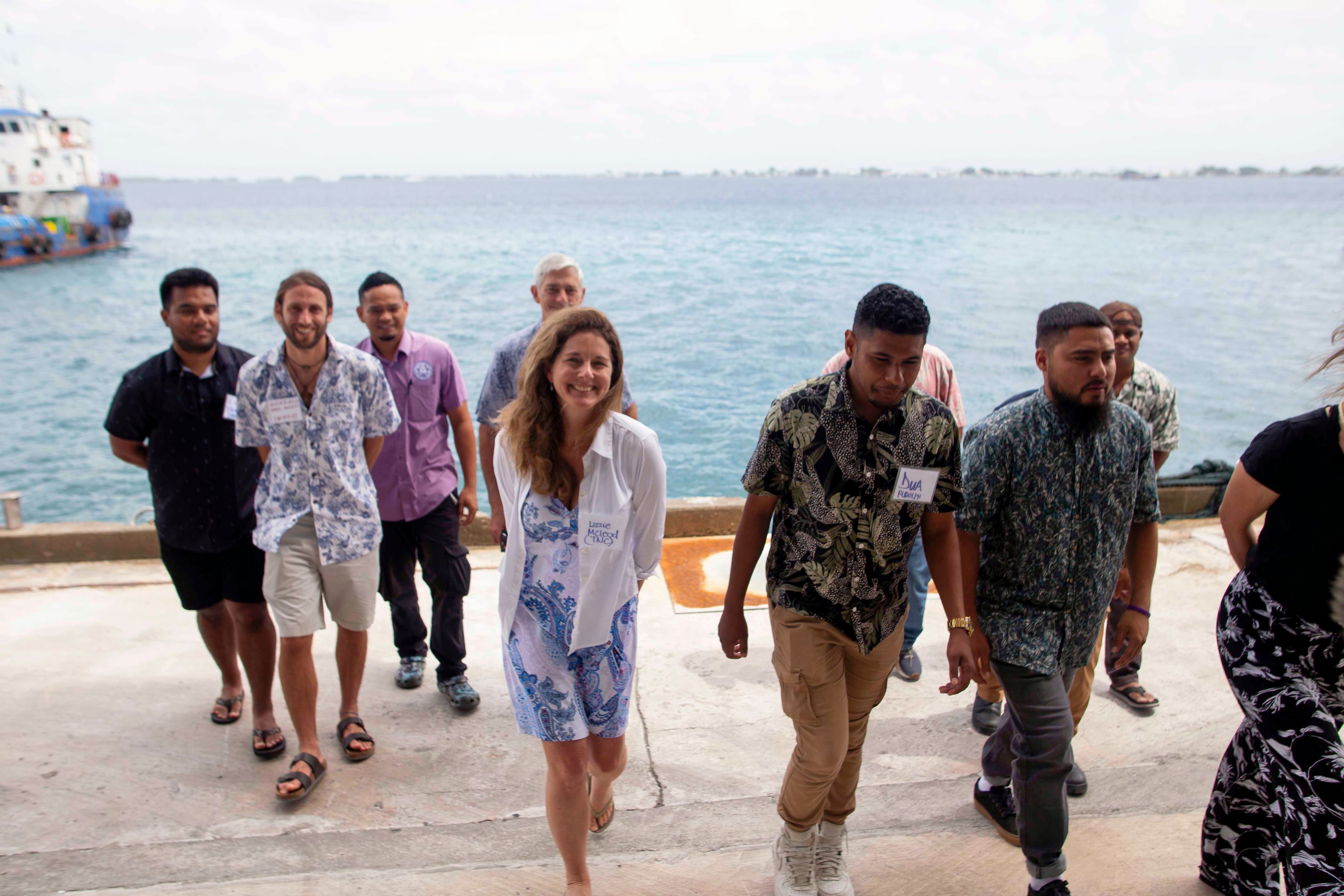
Participants at Super Reefs Kickoff meeting, Majuro, The Marshall Islands
Participants at Super Reefs Kickoff meeting, Majuro, The Marshall Islands
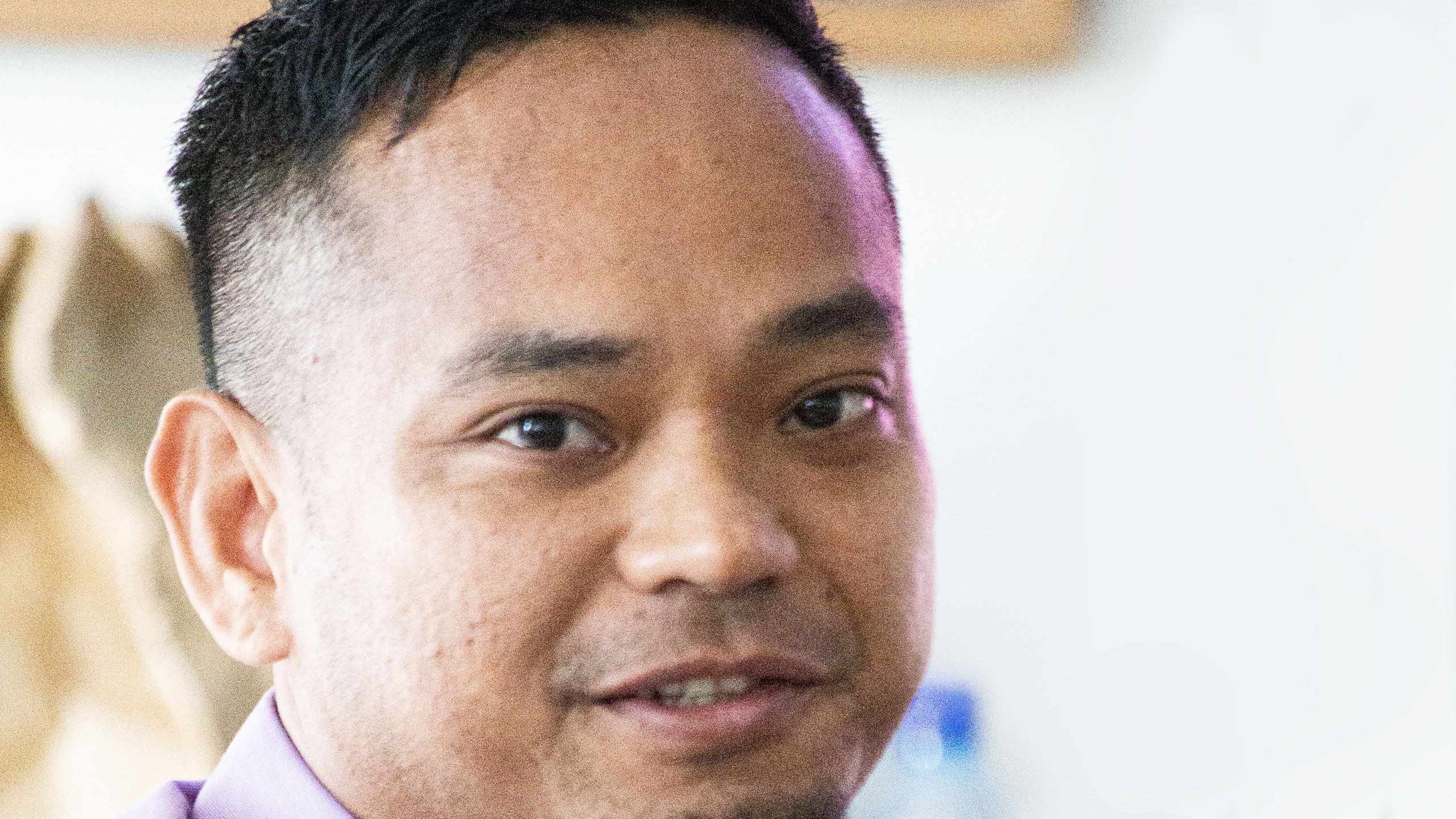
Benedict Yamamura, MIMRA, at Super Reefs Kickoff meeting, Majuro, The Marshall Islands
Benedict Yamamura, MIMRA, at Super Reefs Kickoff meeting, Majuro, The Marshall Islands
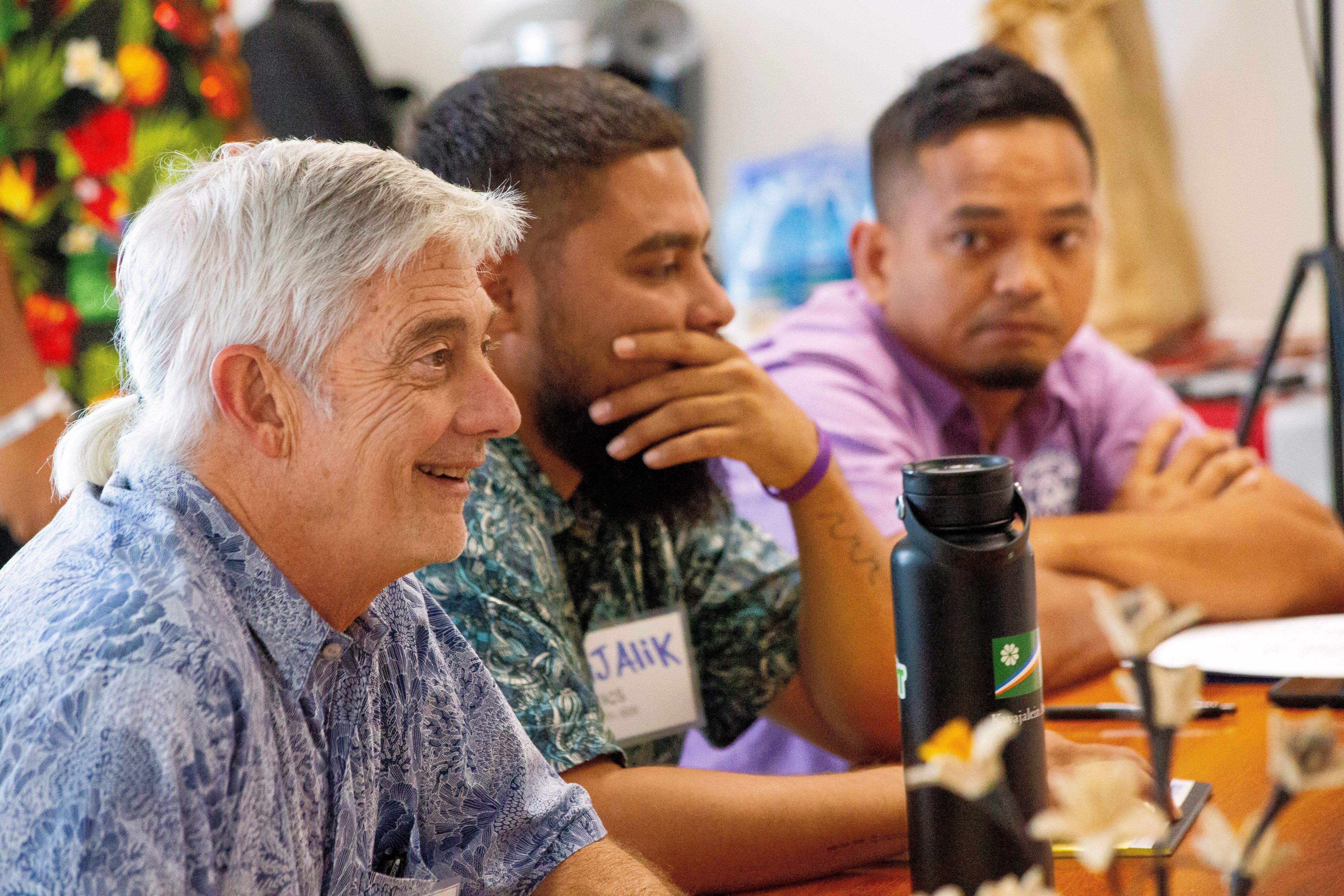
Participants at Super Reefs Kickoff meeting, Majuro, The Marshall Islands
Participants at Super Reefs Kickoff meeting, Majuro, The Marshall Islands
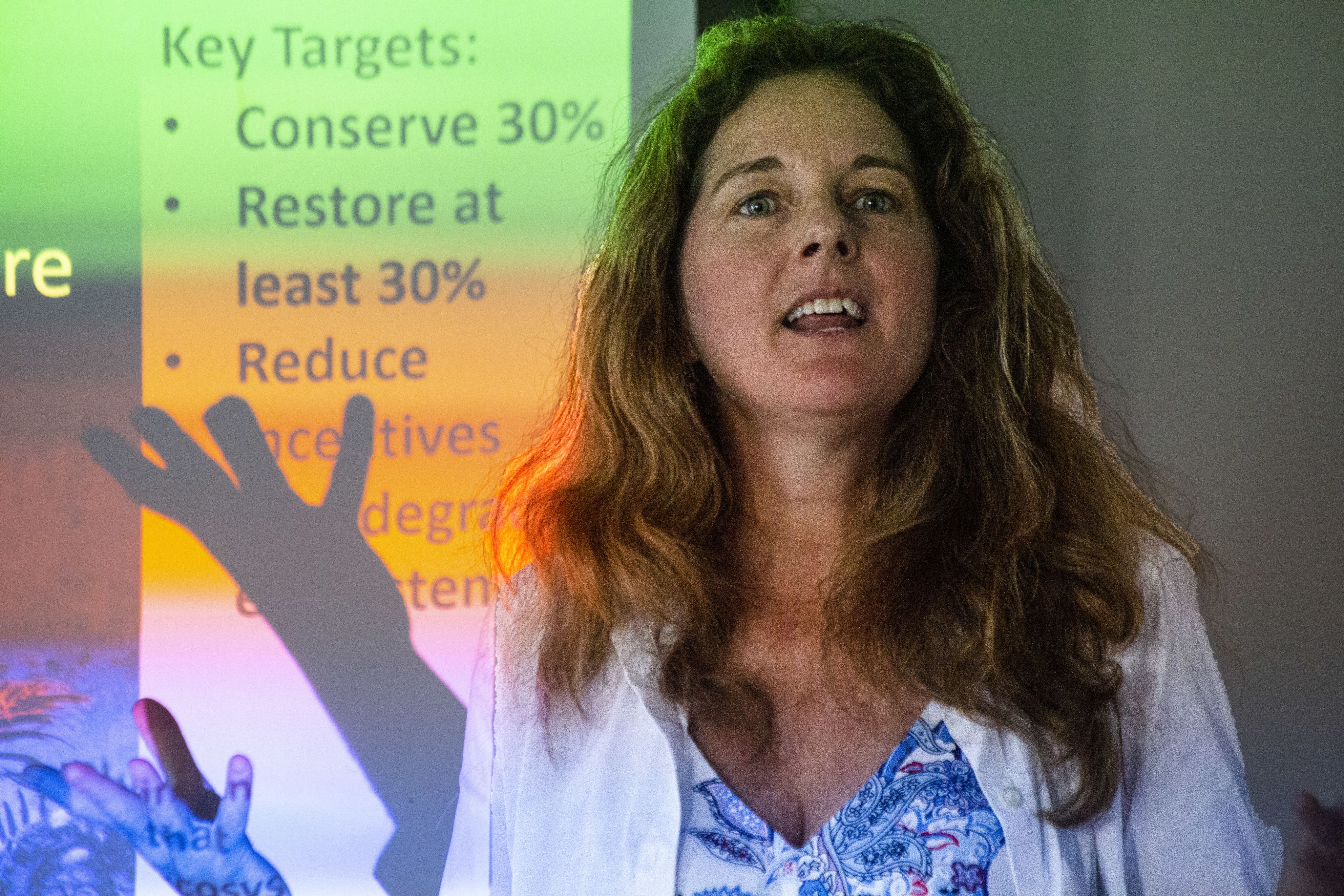
Dr. Lizzie McLeod, TNC, presenting at Super Reefs Kickoff meeting, Majuro, The Marshall Islands
Dr. Lizzie McLeod, TNC, presenting at Super Reefs Kickoff meeting, Majuro, The Marshall Islands
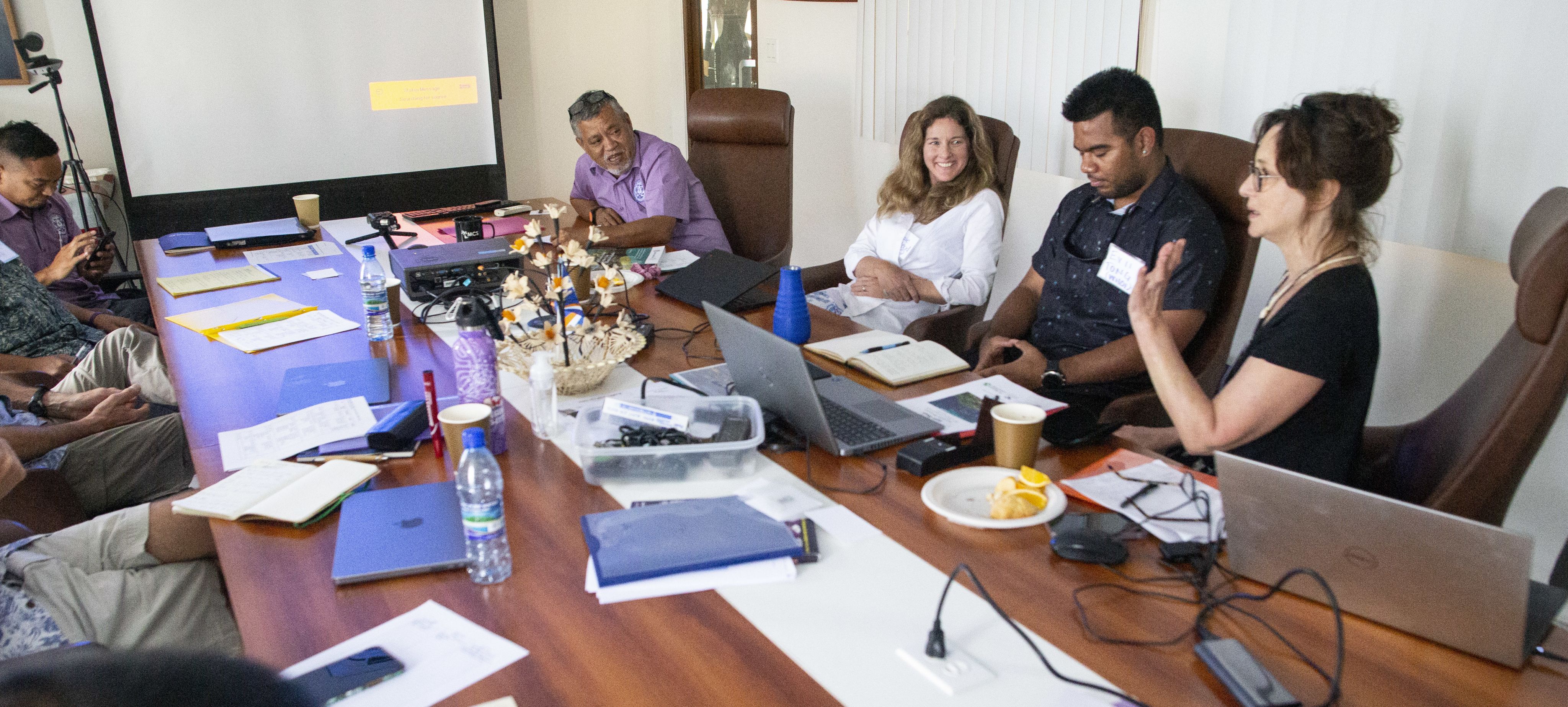
Participants at Super Reefs Kickoff meeting, Majuro, The Marshall Islands
Participants at Super Reefs Kickoff meeting, Majuro, The Marshall Islands

Dr. Anne Cohen, WHOI, presenting at Super Reefs Kickoff meeting, Majuro, The Marshall Islands
Dr. Anne Cohen, WHOI, presenting at Super Reefs Kickoff meeting, Majuro, The Marshall Islands

Evii Tong, WHOI, at Super Reefs Kickoff meeting, Majuro, The Marshall Islands
Evii Tong, WHOI, at Super Reefs Kickoff meeting, Majuro, The Marshall Islands
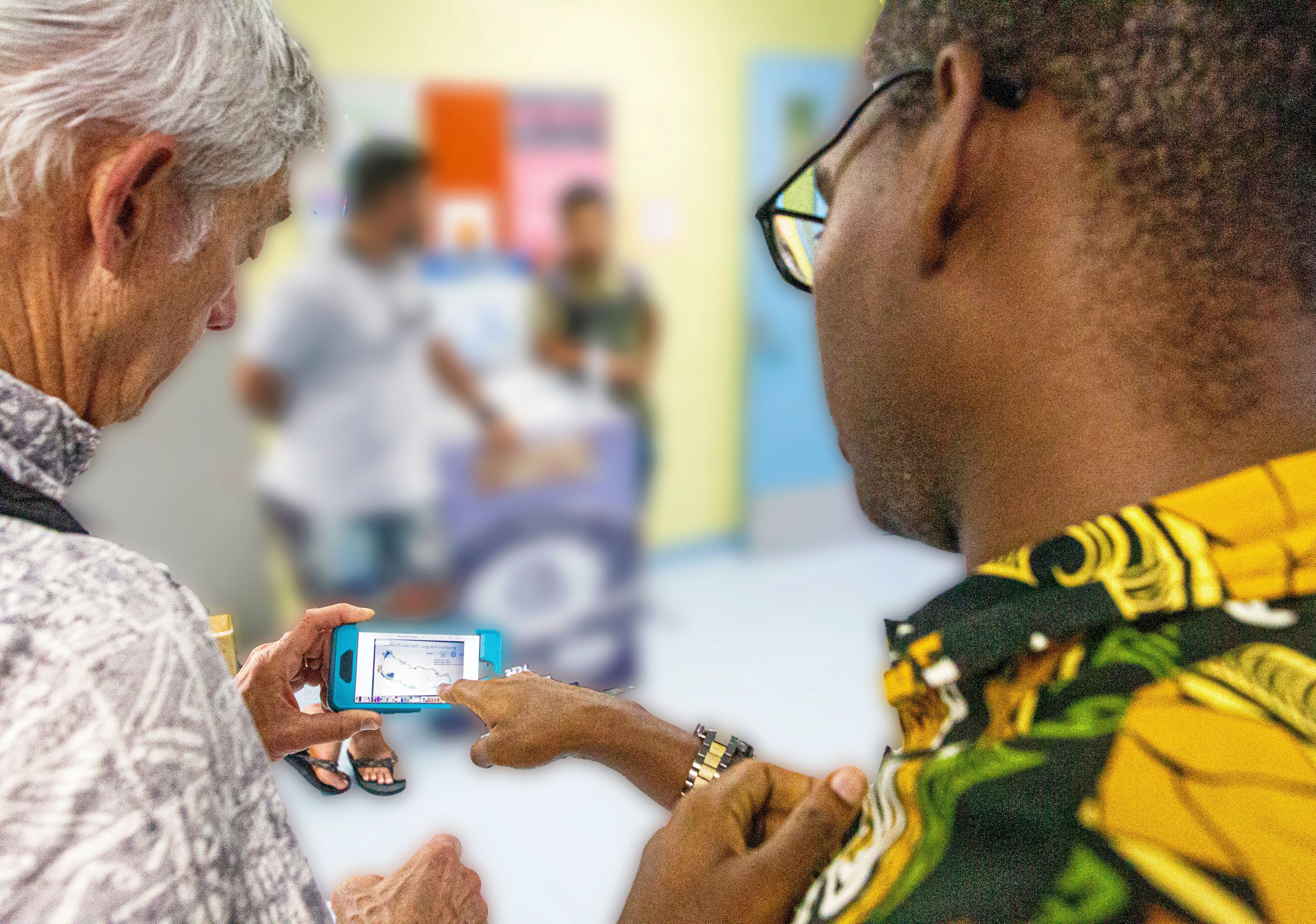
Dr. Steve Palumbi, Stanford University, speaking with College of Marshall Islands instructor, Majuro, The Marshall Islands
Dr. Steve Palumbi, Stanford University, speaking with College of Marshall Islands instructor, Majuro, The Marshall Islands
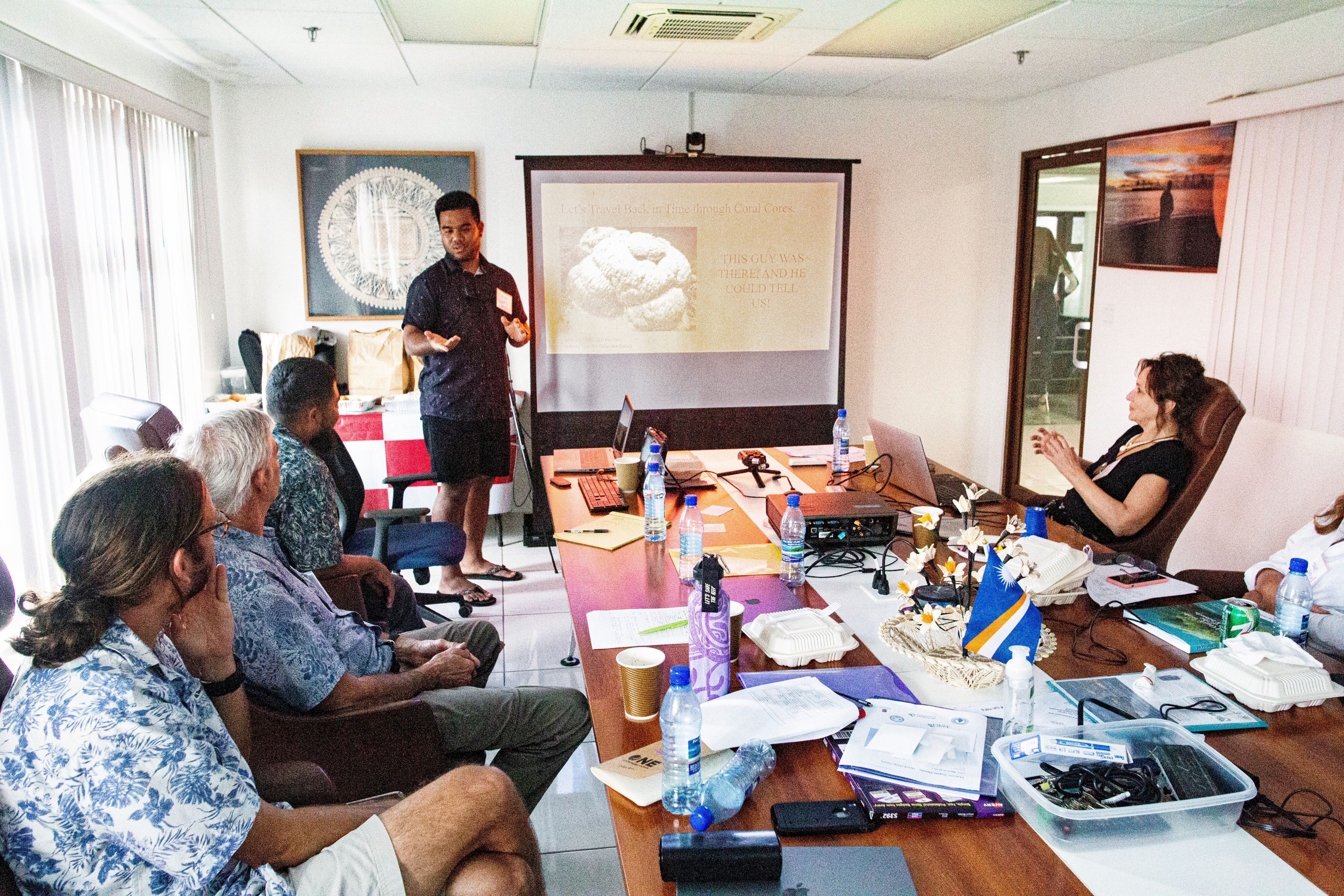
Evii Tong, WHOI, presenting at Super Reefs Kickoff meeting, Majuro, The Marshall Islands
Evii Tong, WHOI, presenting at Super Reefs Kickoff meeting, Majuro, The Marshall Islands
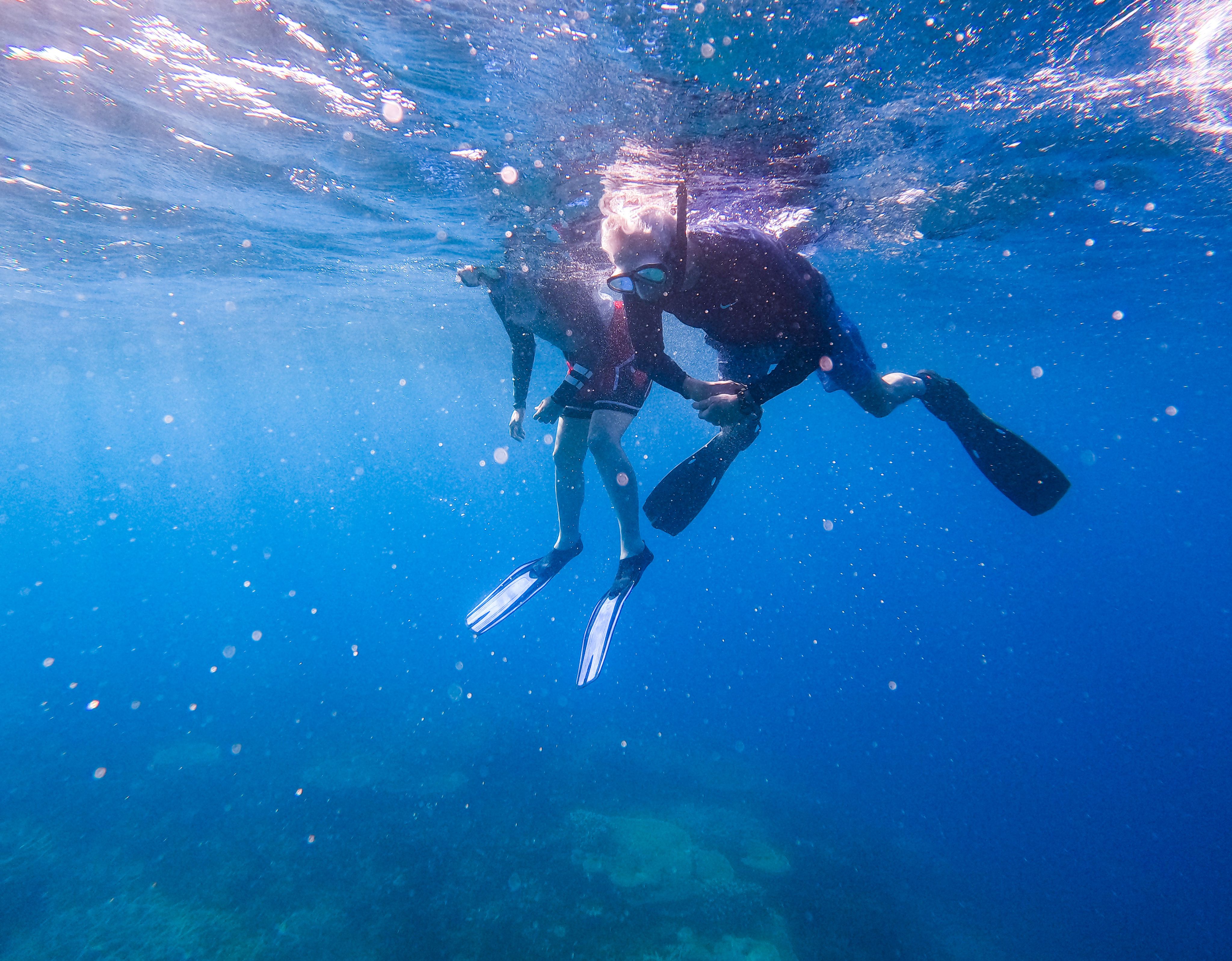
(L to R) Dr. Anne Cohen, WHOI; Dr. Steve Palumbi, Stanford University, diving at Super Reefs site, Majuro, The Marshall Islands
(L to R) Dr. Anne Cohen, WHOI; Dr. Steve Palumbi, Stanford University, diving at Super Reefs site, Majuro, The Marshall Islands
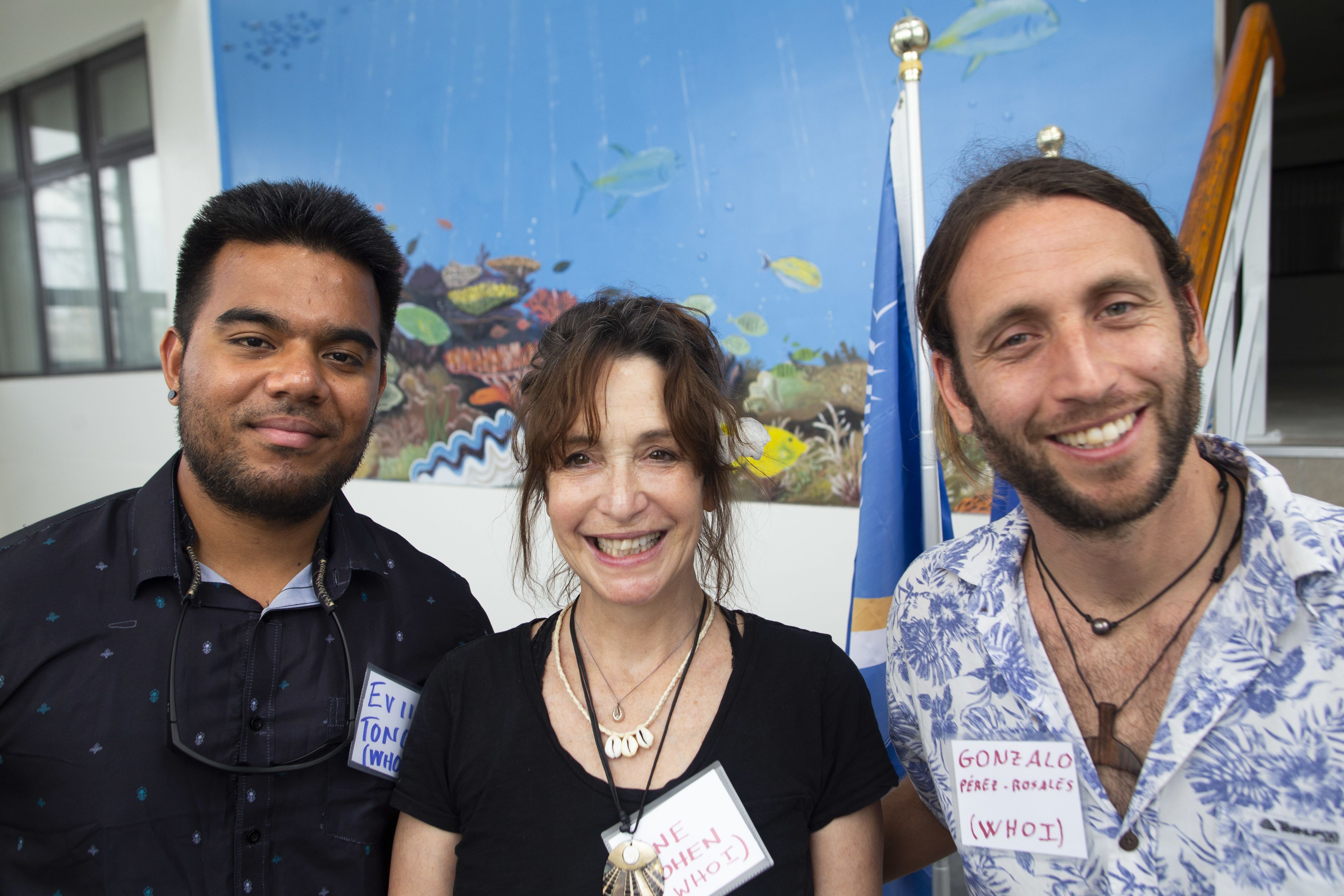
(L to R) Evii Tong, Dr. Anne Cohen, Dr. Gonzalo Pérez-Rosales, all from WHOI, at Super Reefs Kickoff meeting, Majuro, The Marshall Islands
(L to R) Evii Tong, Dr. Anne Cohen, Dr. Gonzalo Pérez-Rosales, all from WHOI, at Super Reefs Kickoff meeting, Majuro, The Marshall Islands
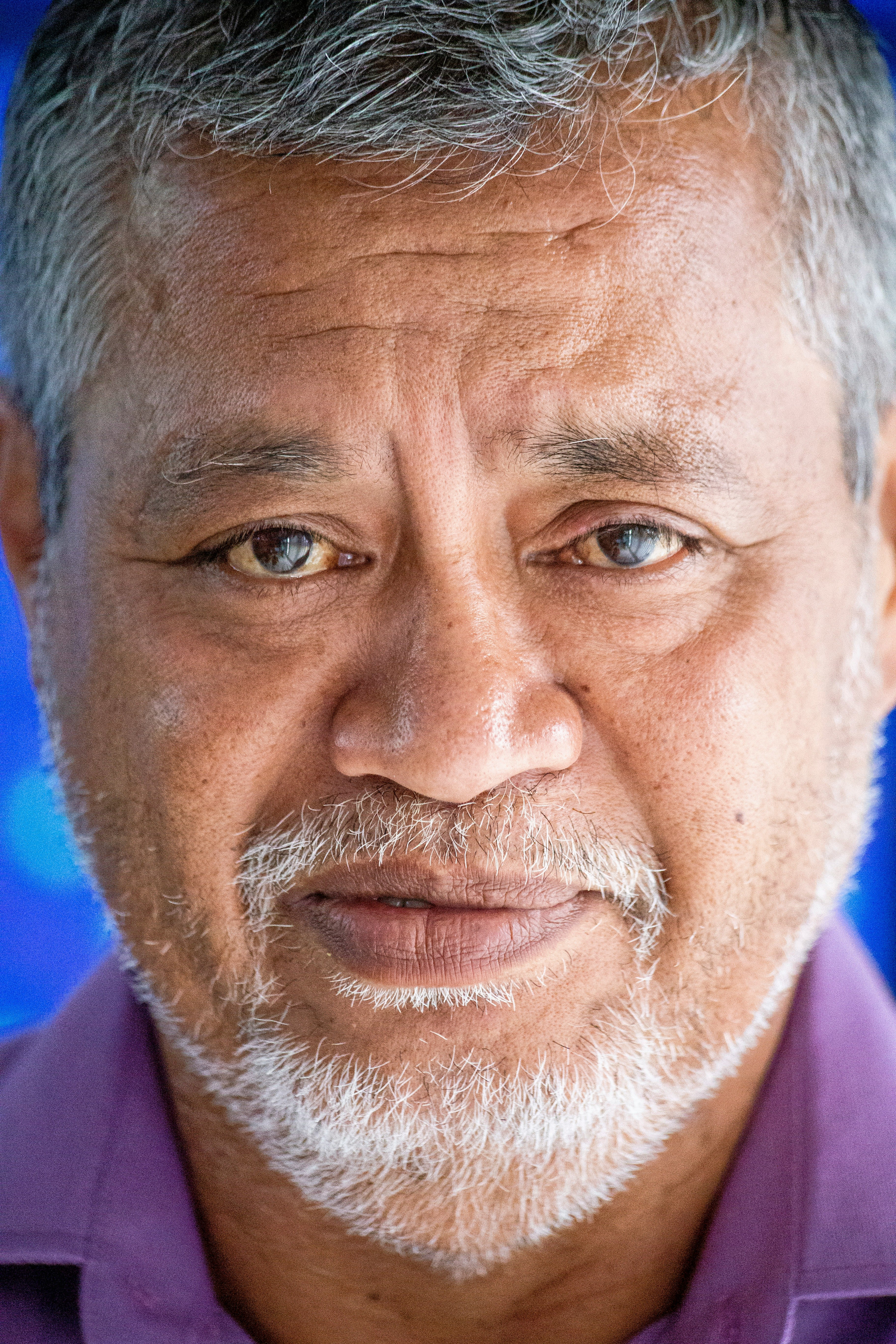
Glen Joseph, MIMRA, at Super Reefs Kickoff meeting, Majuro, The Marshall Islands
Glen Joseph, MIMRA, at Super Reefs Kickoff meeting, Majuro, The Marshall Islands
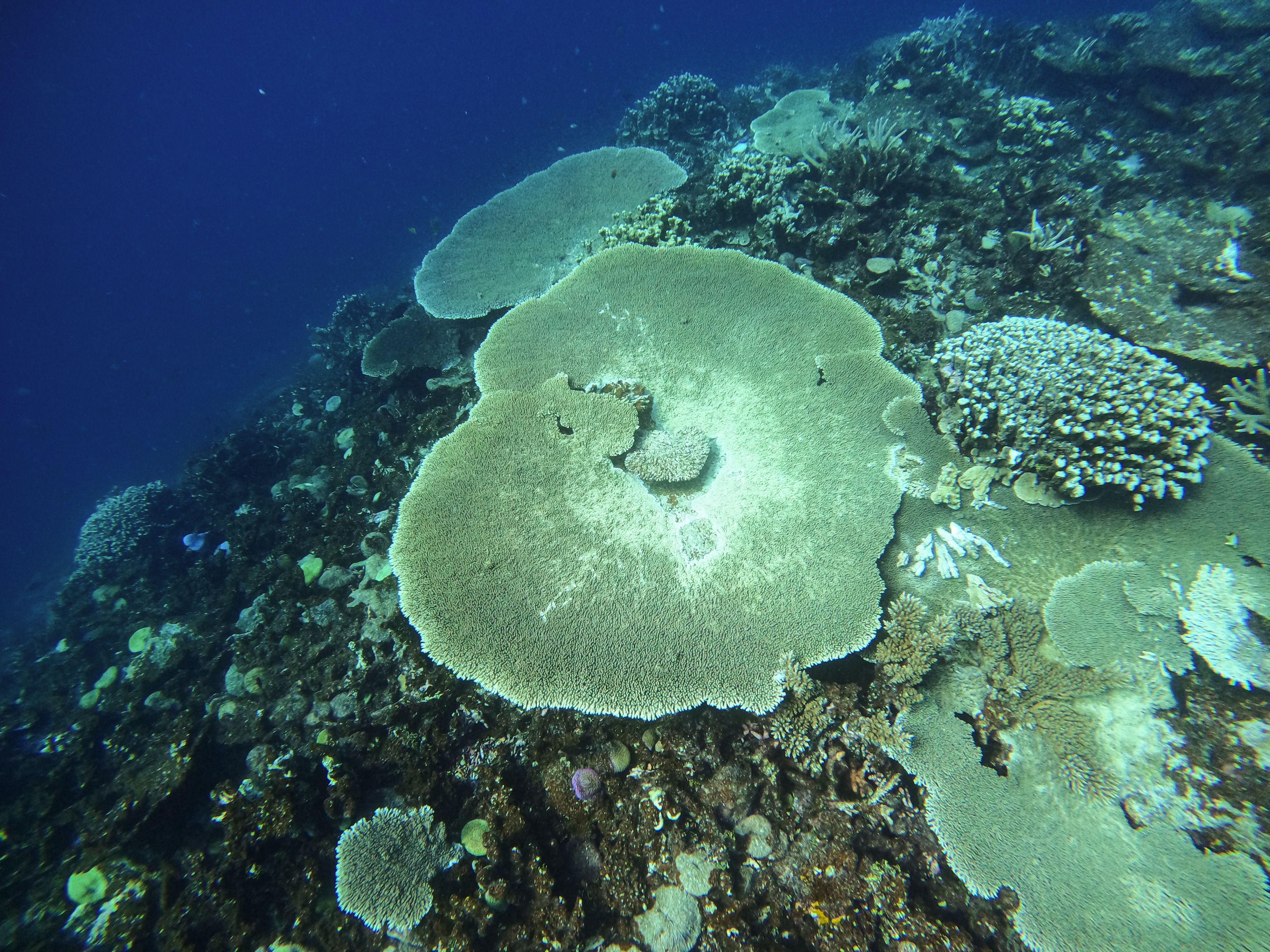
Acropora coral at Super Reefs site, Majuro, Marshall Islands
Acropora coral at Super Reefs site, Majuro, Marshall Islands
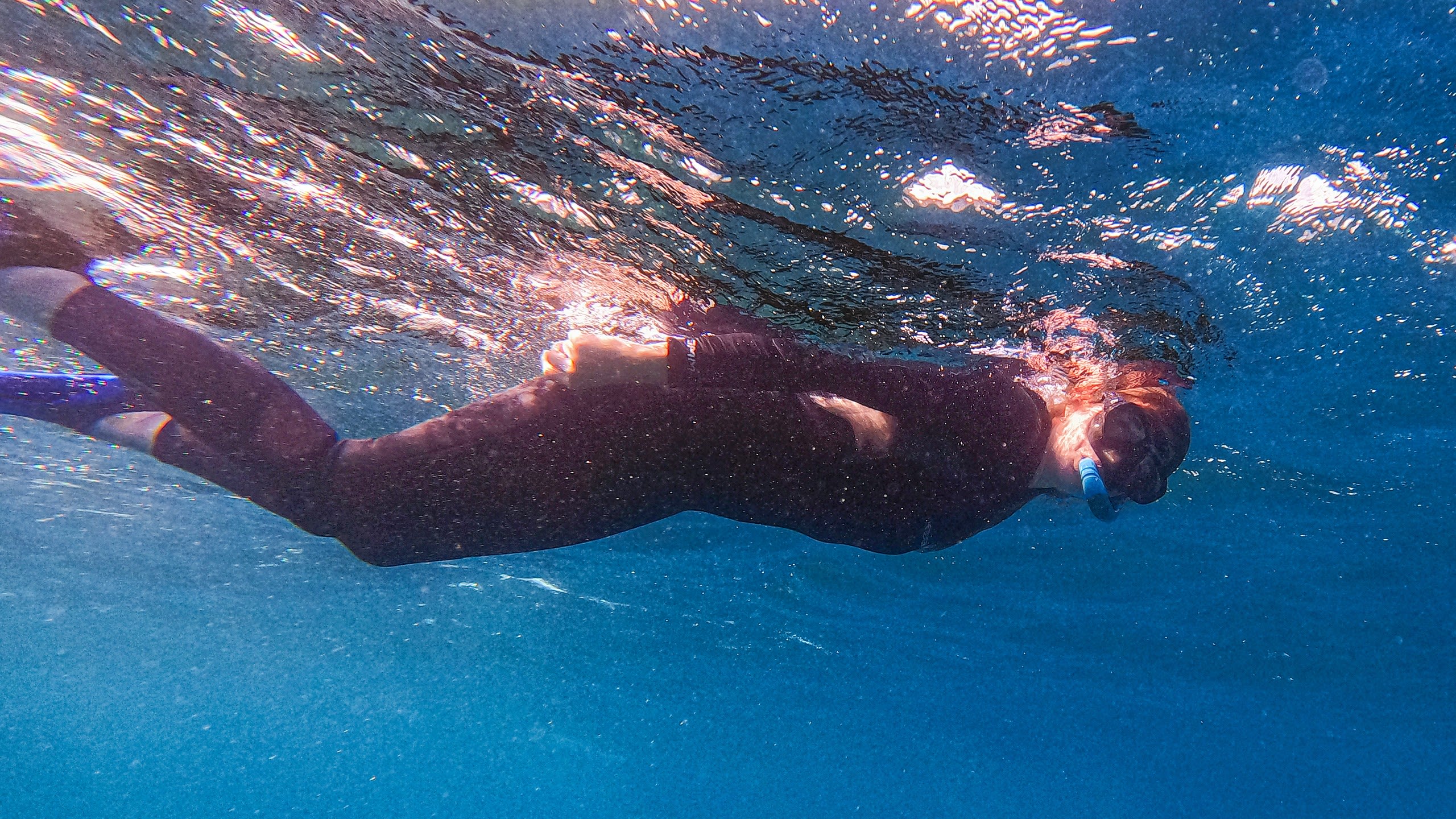
Dr. Lizzie McLeod, TNC, diving at Super Reefs site, Majuro, The Marshall Islands
Dr. Lizzie McLeod, TNC, diving at Super Reefs site, Majuro, The Marshall Islands
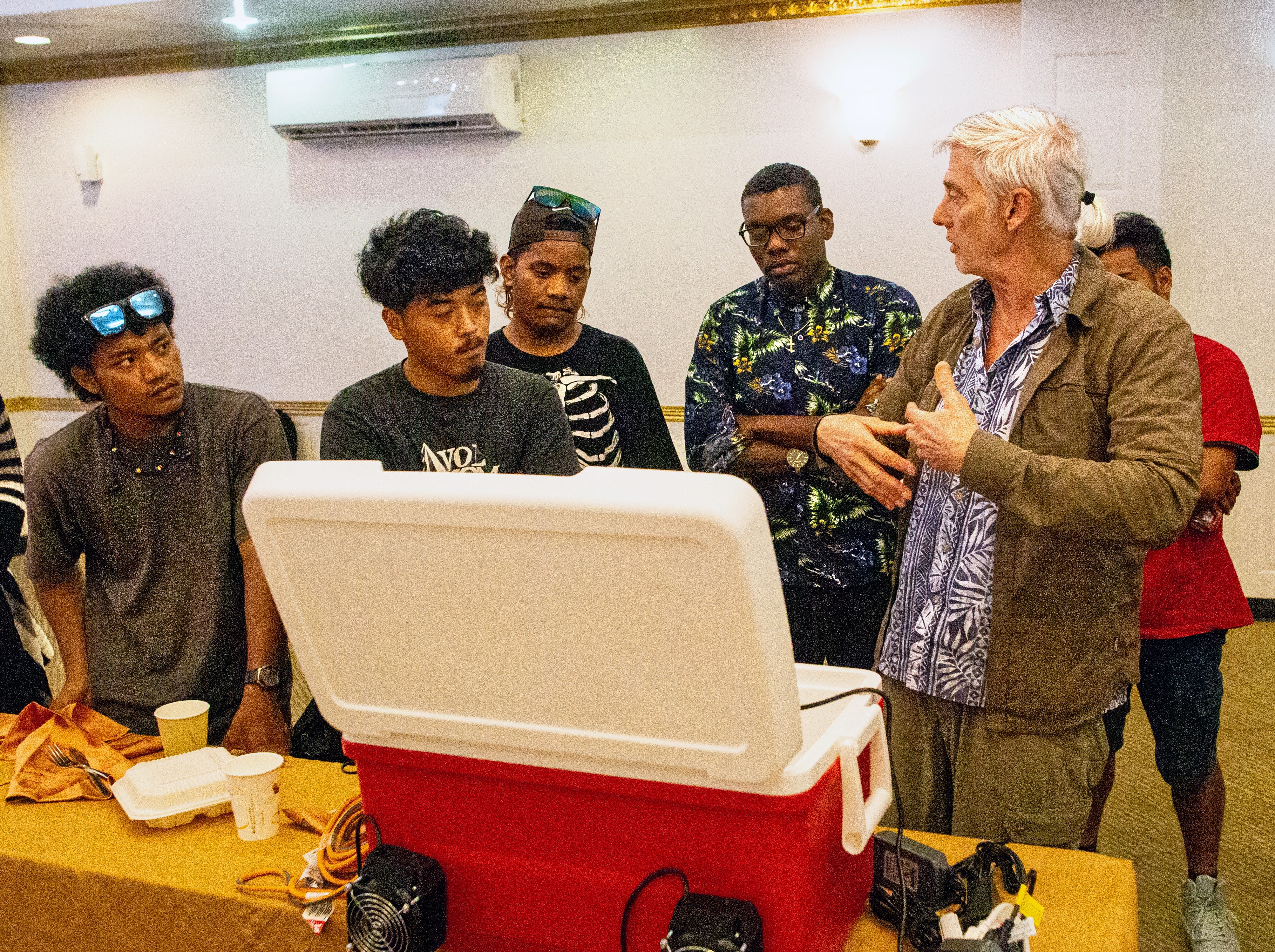
Dr. Steve Palumbi, Stanford University, speaking with College of Marshall Islands students, Majuro, The Marshall Islands
Dr. Steve Palumbi, Stanford University, speaking with College of Marshall Islands students, Majuro, The Marshall Islands
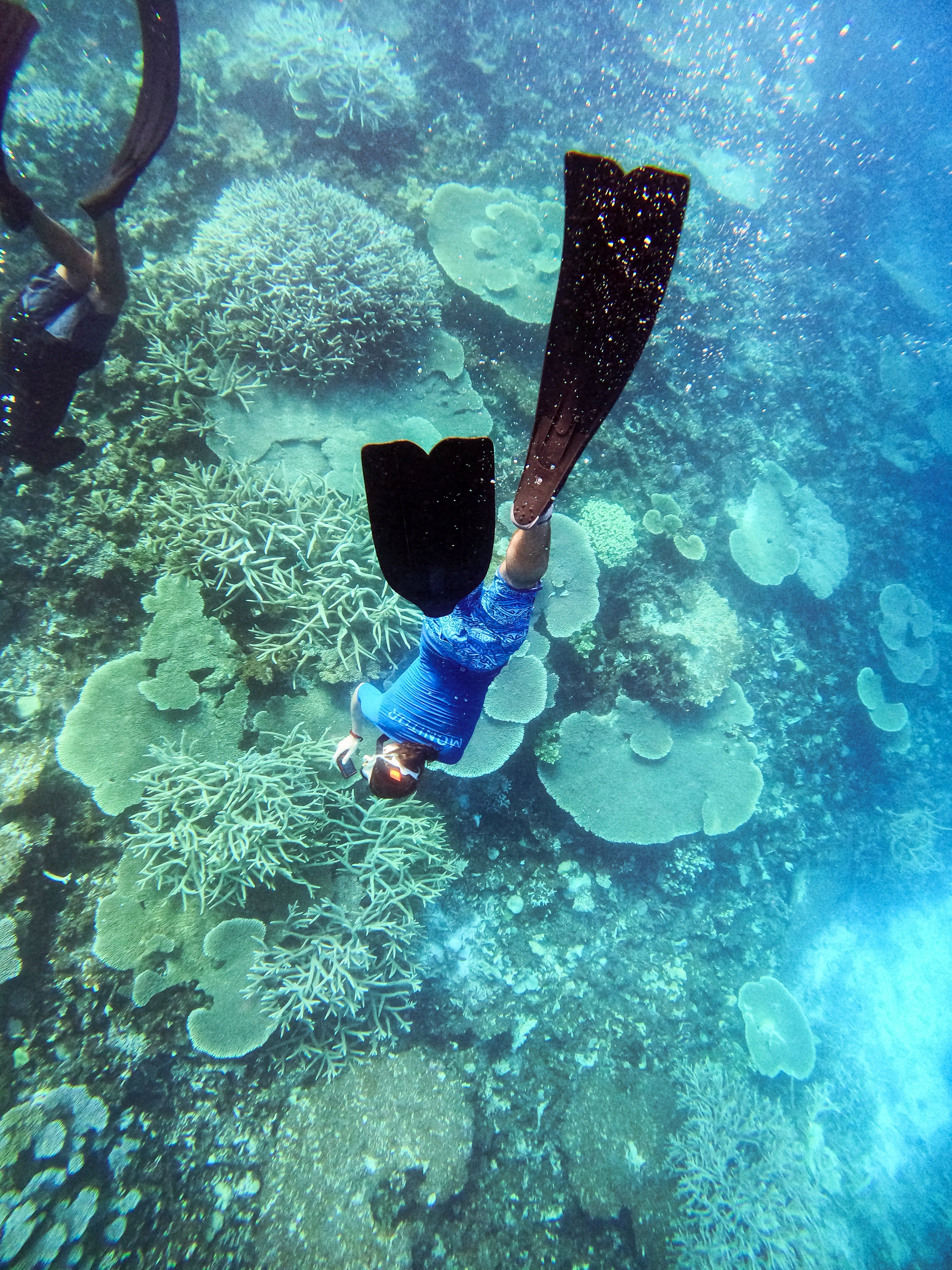
Dr. Steve Palumbi, Stanford University, diving at Super Reefs site, Majuro, The Marshall Islands
Dr. Steve Palumbi, Stanford University, diving at Super Reefs site, Majuro, The Marshall Islands
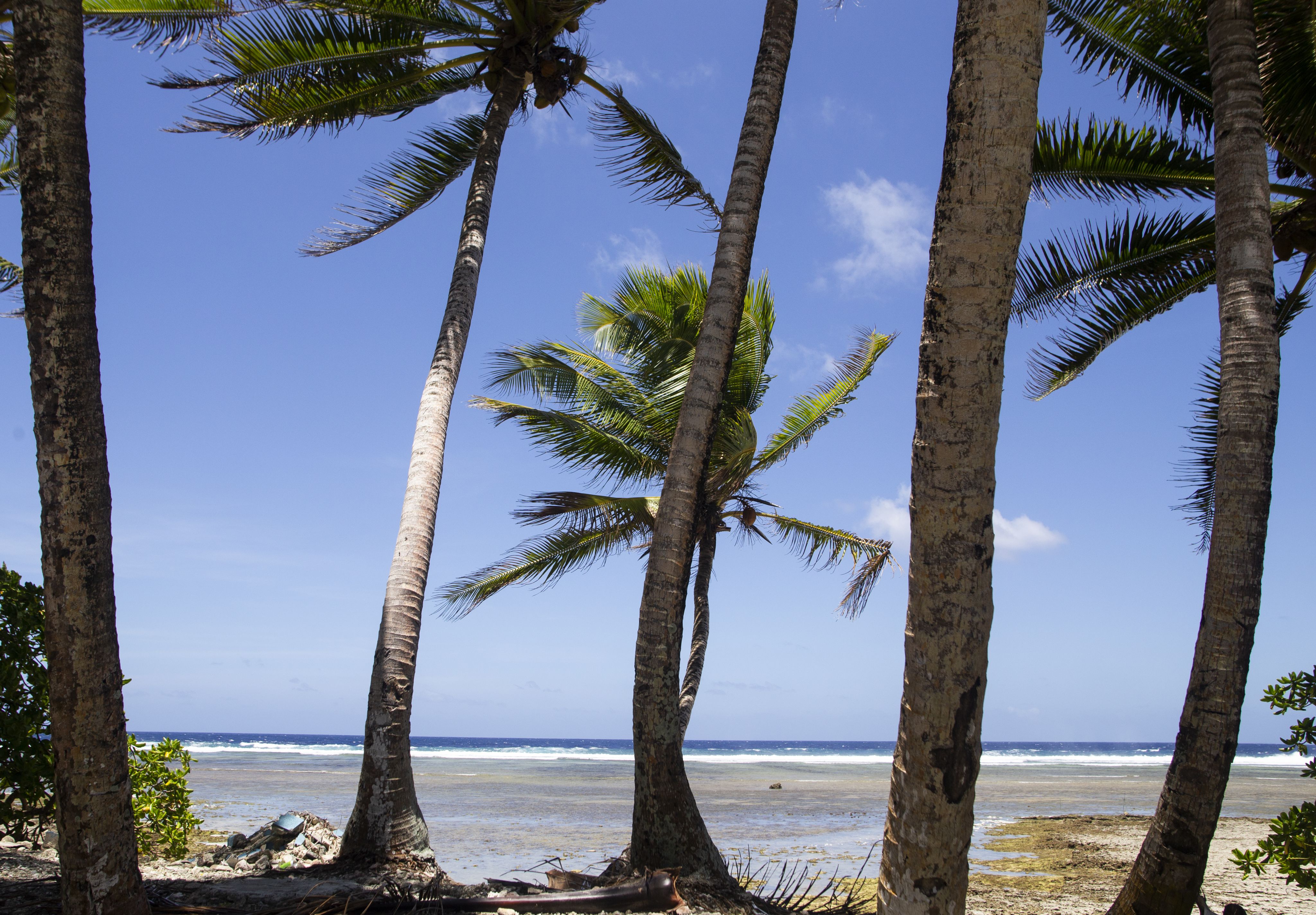
View from College of Marshall Islands, Majuro, Marshall Islands
View from College of Marshall Islands, Majuro, Marshall Islands
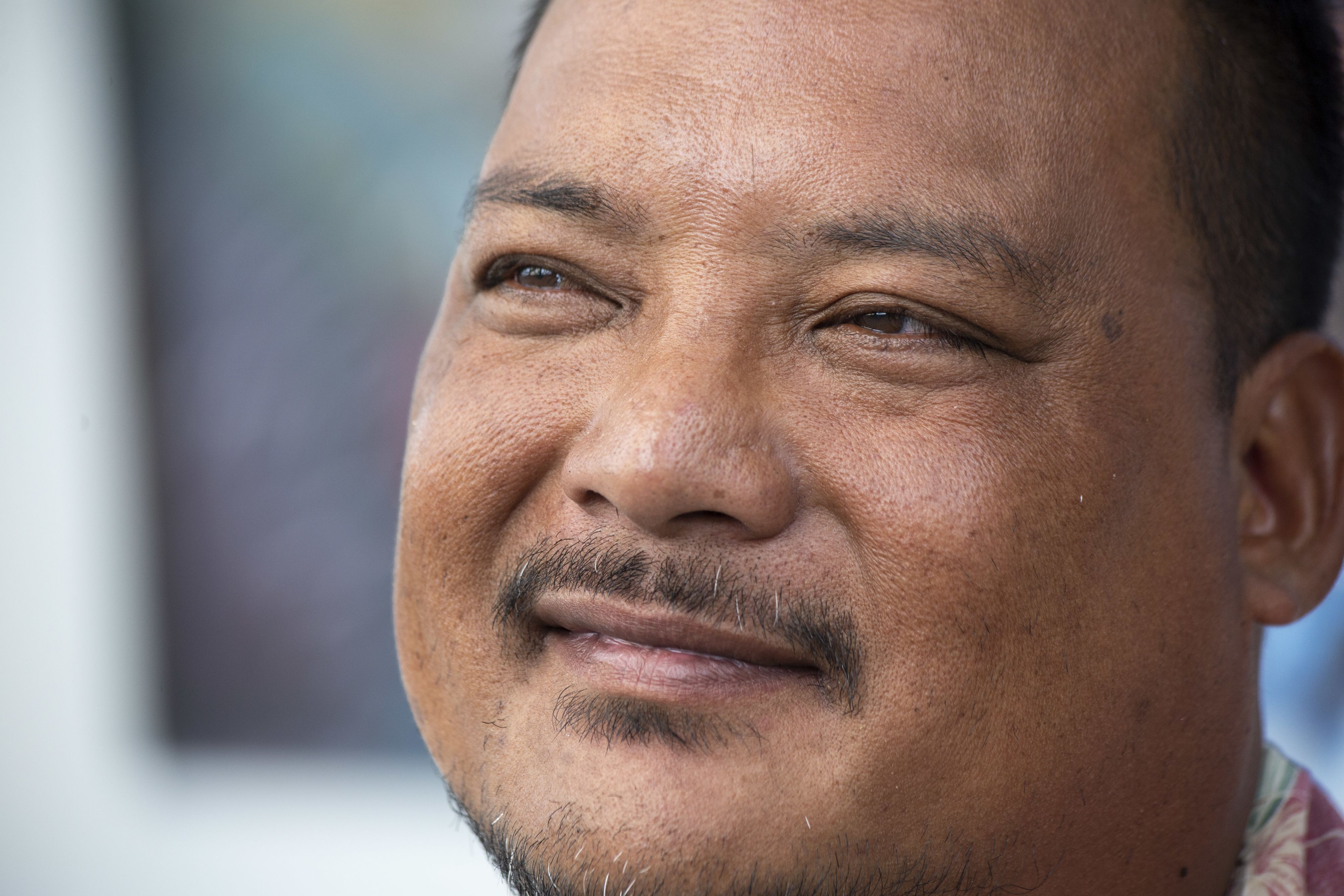
Boaz Lamdrik, Majuro Councilperson, at Super Reefs Kickoff meeting, Marjuro, The Marshall Islands
Boaz Lamdrik, Majuro Councilperson, at Super Reefs Kickoff meeting, Marjuro, The Marshall Islands

Dr. Gonzalo Pérez-Rosales, WHOI, at Super Reefs Kickoff meeting, Majuro, The Marshall Islands
Dr. Gonzalo Pérez-Rosales, WHOI, at Super Reefs Kickoff meeting, Majuro, The Marshall Islands
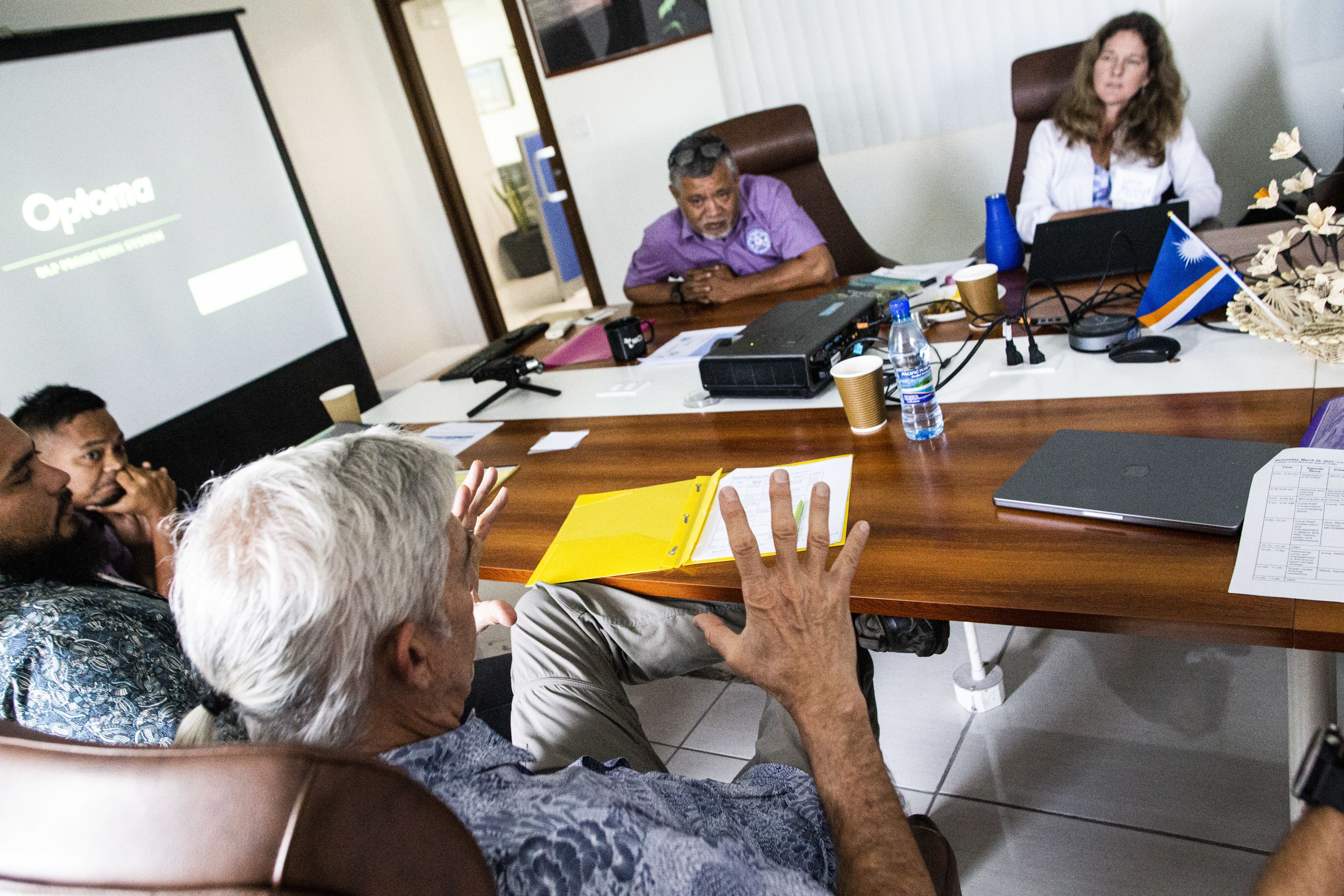
Participants at Super Reefs Kickoff meeting, Majuro, The Marshall Islands
Participants at Super Reefs Kickoff meeting, Majuro, The Marshall Islands
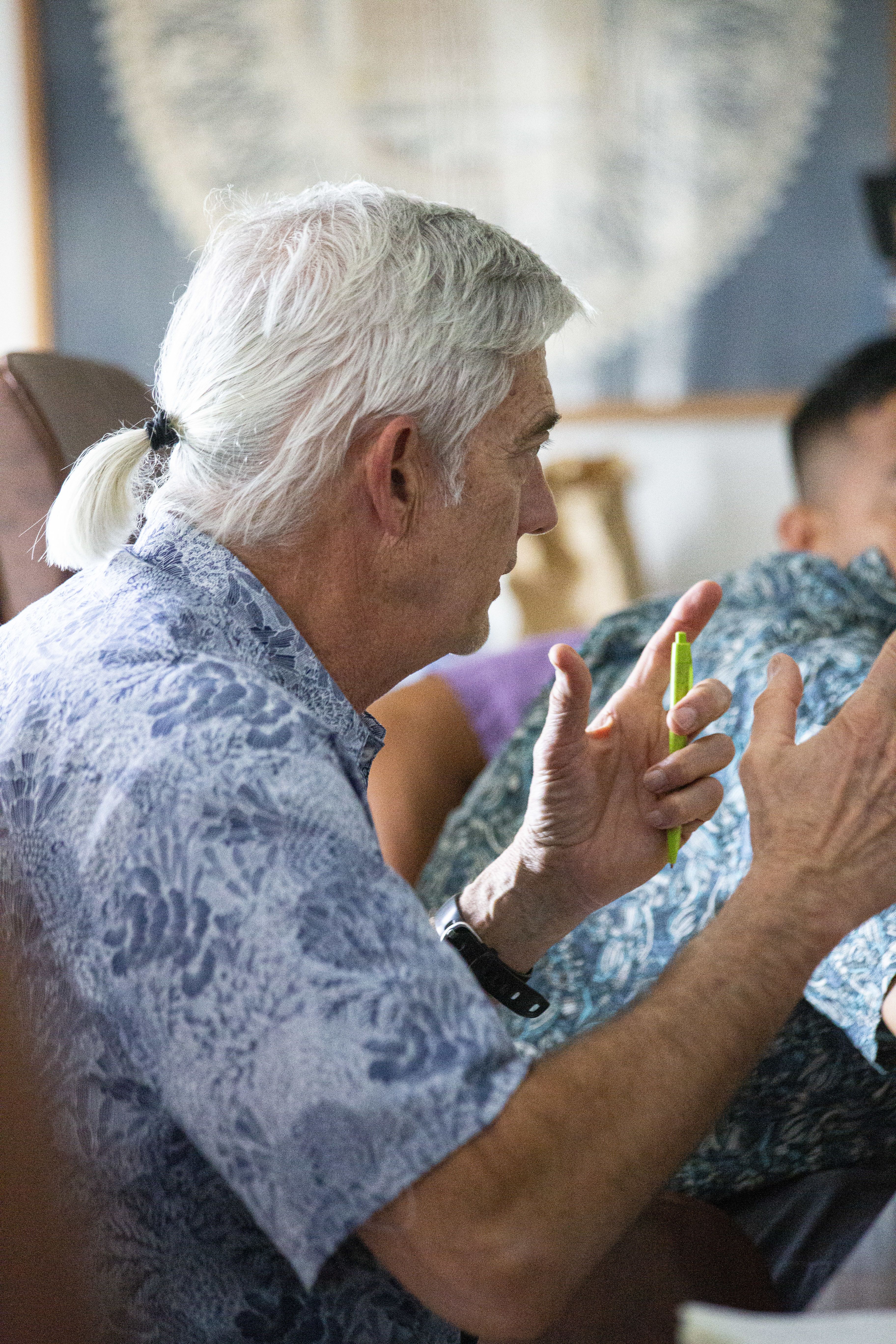
Dr. Steve Palumbi, Stanford University, at Super Reefs Kickoff meeting, Majuro, The Marshall Islands
Dr. Steve Palumbi, Stanford University, at Super Reefs Kickoff meeting, Majuro, The Marshall Islands
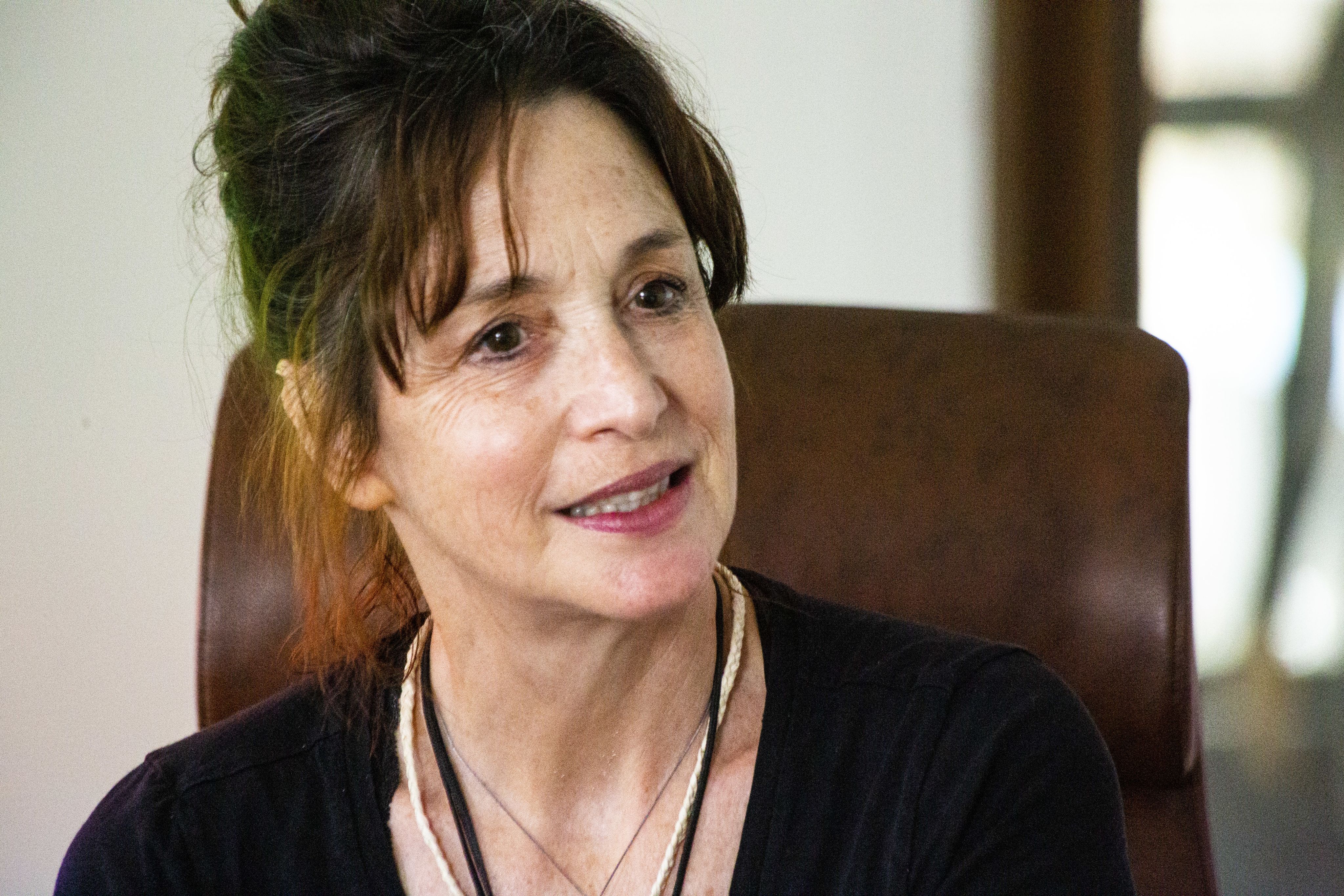
Dr. Anne Cohen, WHOI, at Super Reefs Kickoff meeting, Majuro, The Marshall Islands
Dr. Anne Cohen, WHOI, at Super Reefs Kickoff meeting, Majuro, The Marshall Islands
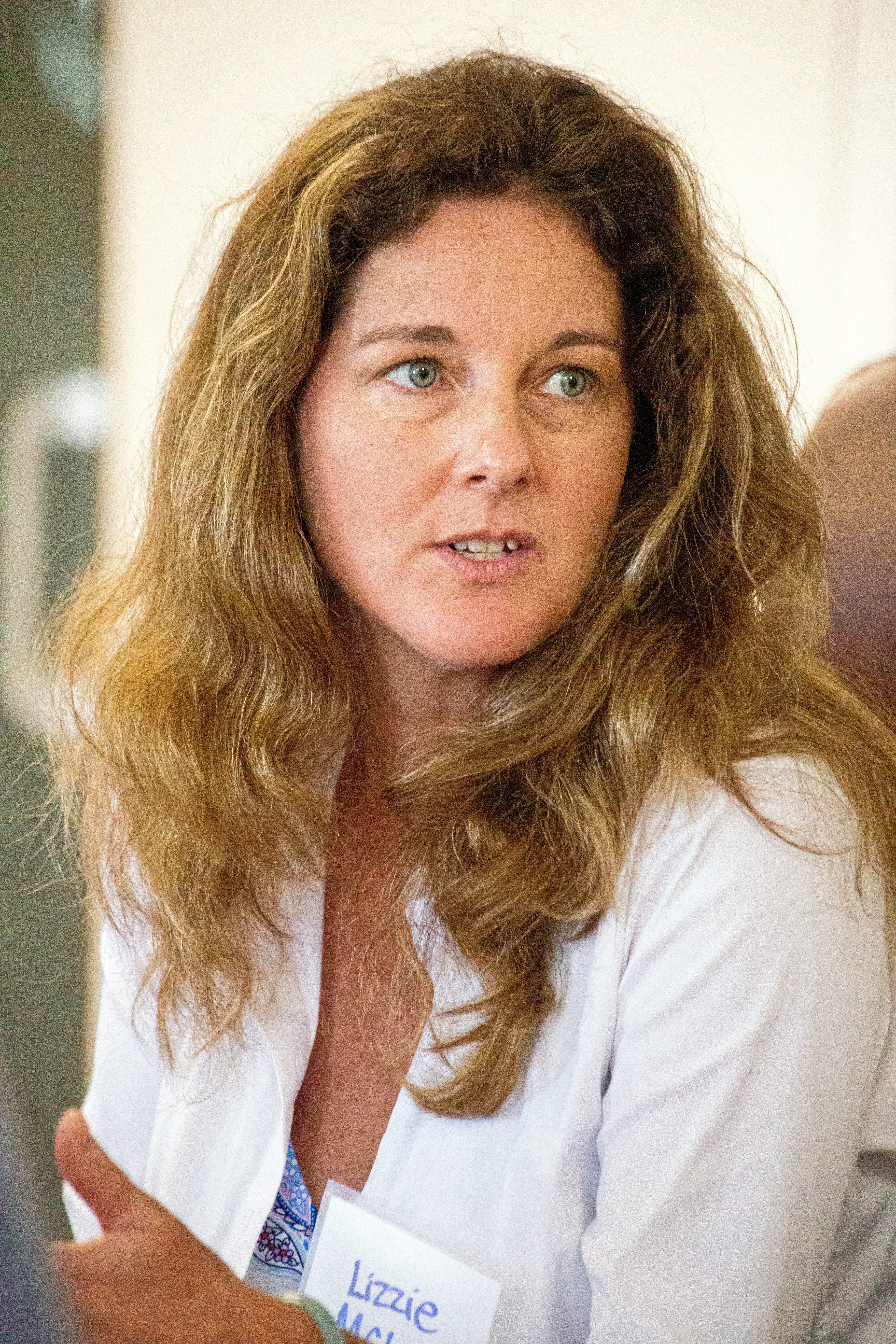
Dr. Lizzie McLeod, TNC, at Super Reefs Kickoff meeting, Majuro, The Marshall Islands
Dr. Lizzie McLeod, TNC, at Super Reefs Kickoff meeting, Majuro, The Marshall Islands
“I want to say thank you for hosting us today and thank you to MICS, MIMRA and members of the Majuro local government, for being here and voicing your ideas, thoughts and experiences.”
“In the short time we've been here, we found there's a huge amount of energy for saving the coral reefs, because they're so important to the folks that live here.”
“This is the first time that I have really seen this incredible partnership with some of the leading marine scientists and climate modelers in the world, coming together with local communities that are really championing conservation on the frontlines.”

LOOKING AHEAD
Once the team starts implementing conservation actions in 2024, details will be provided.

©2023 All rights reserved

